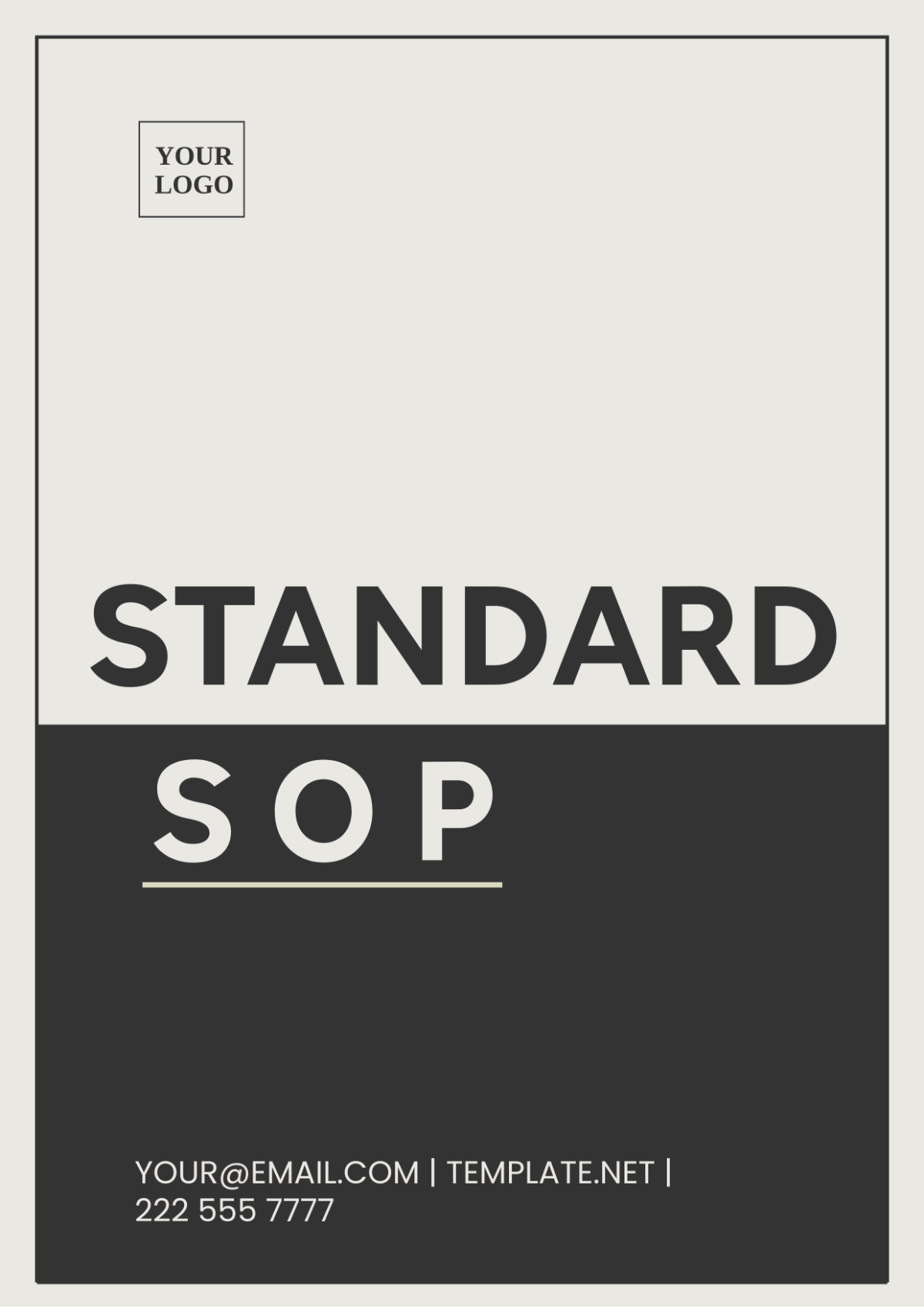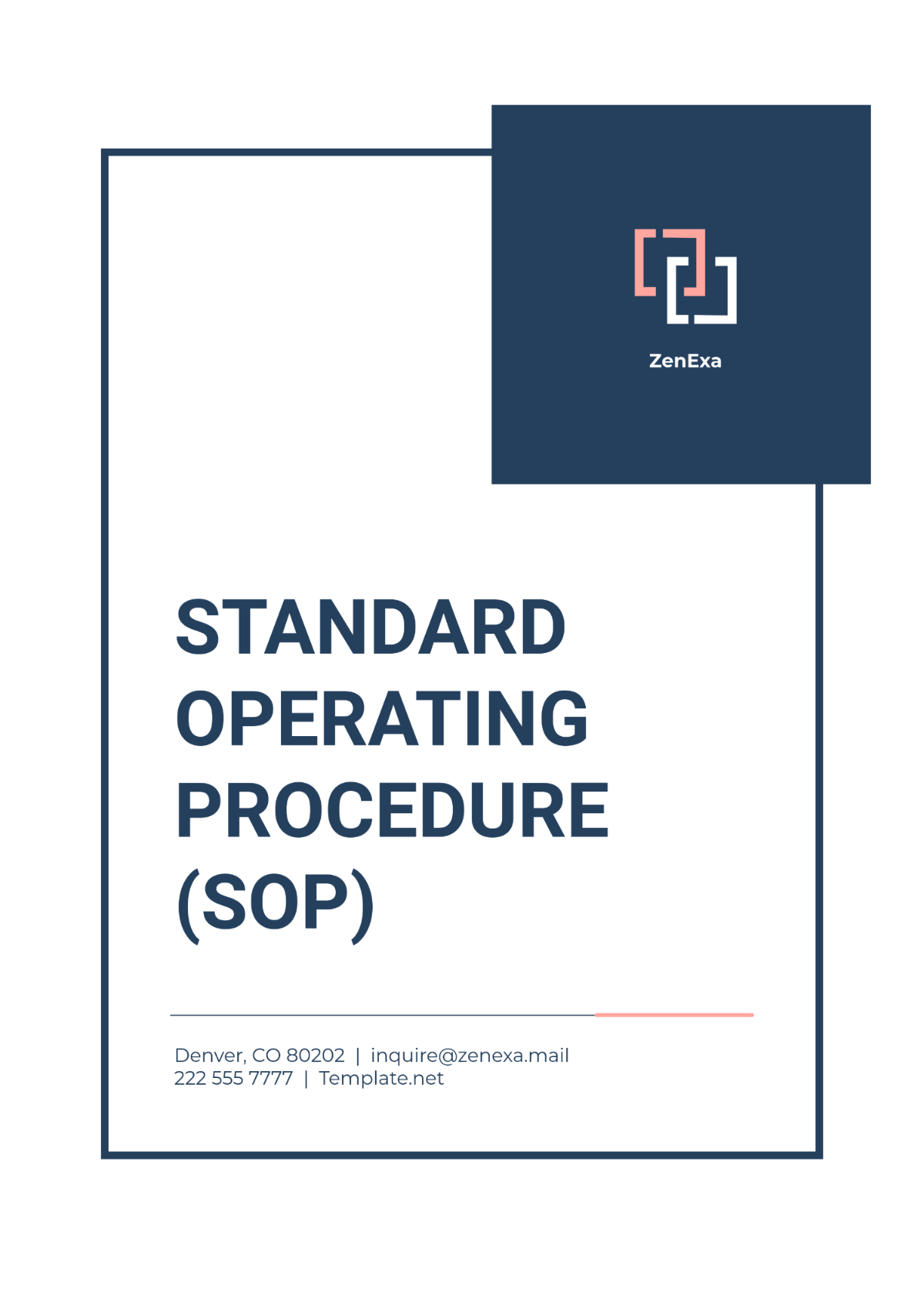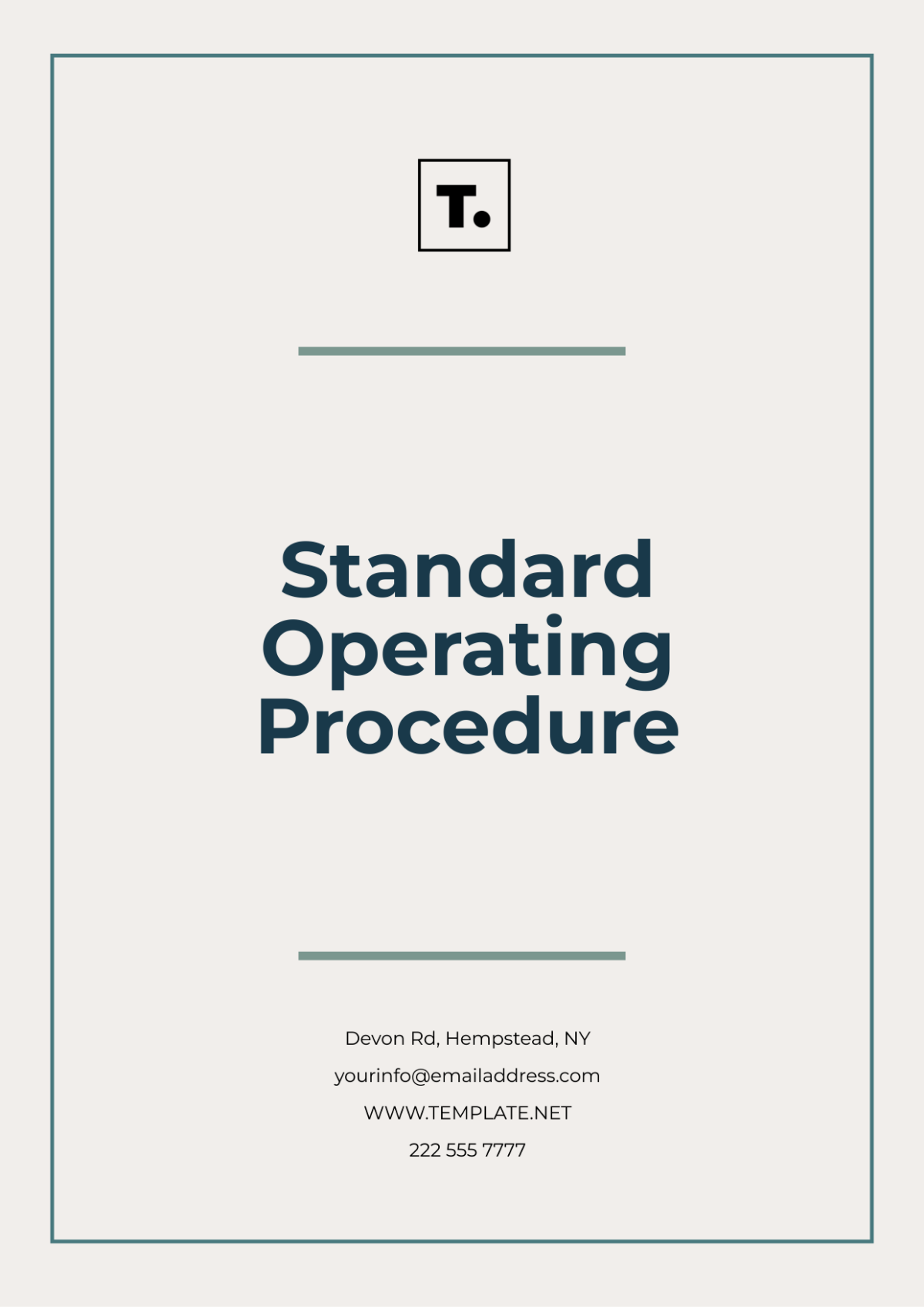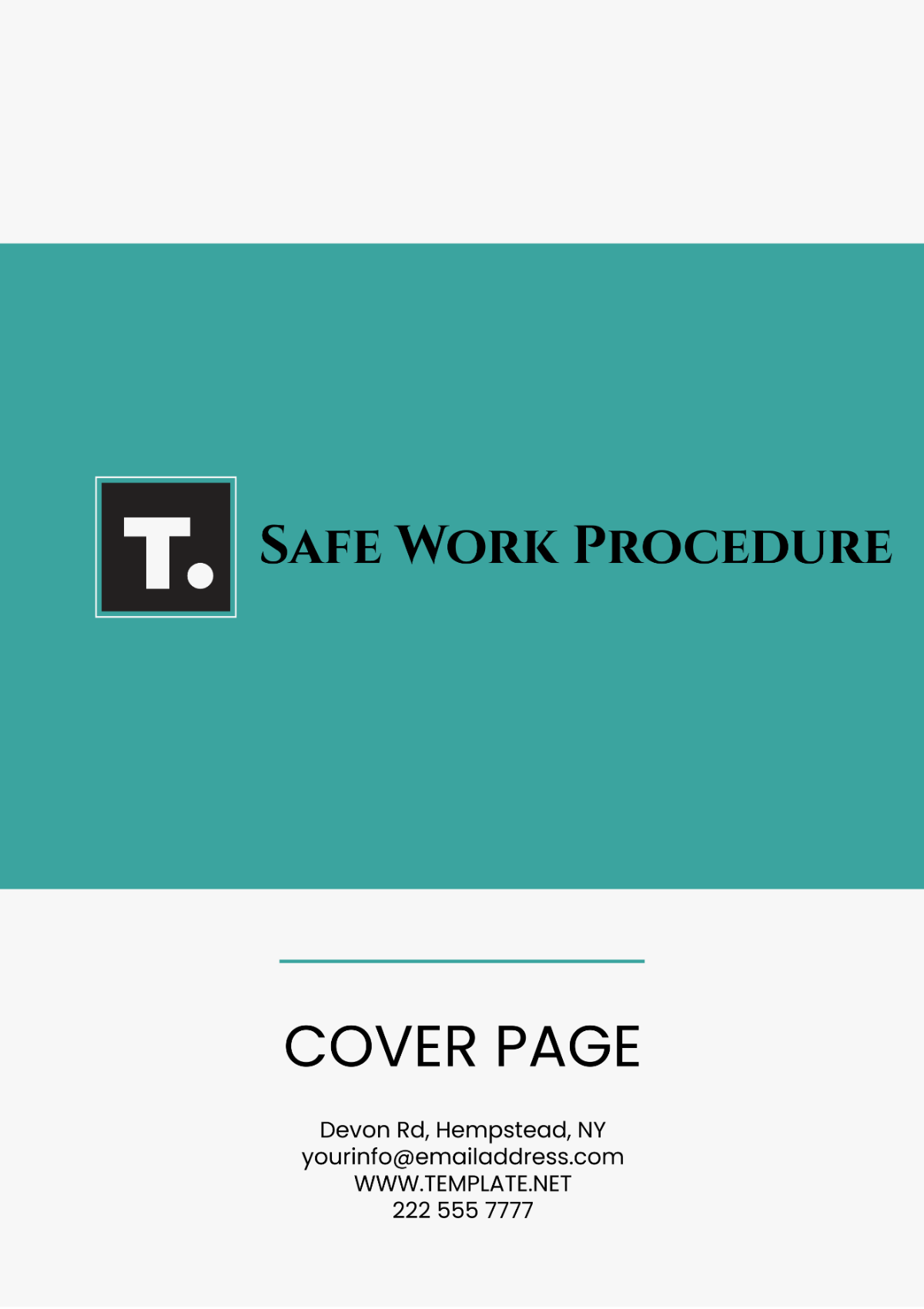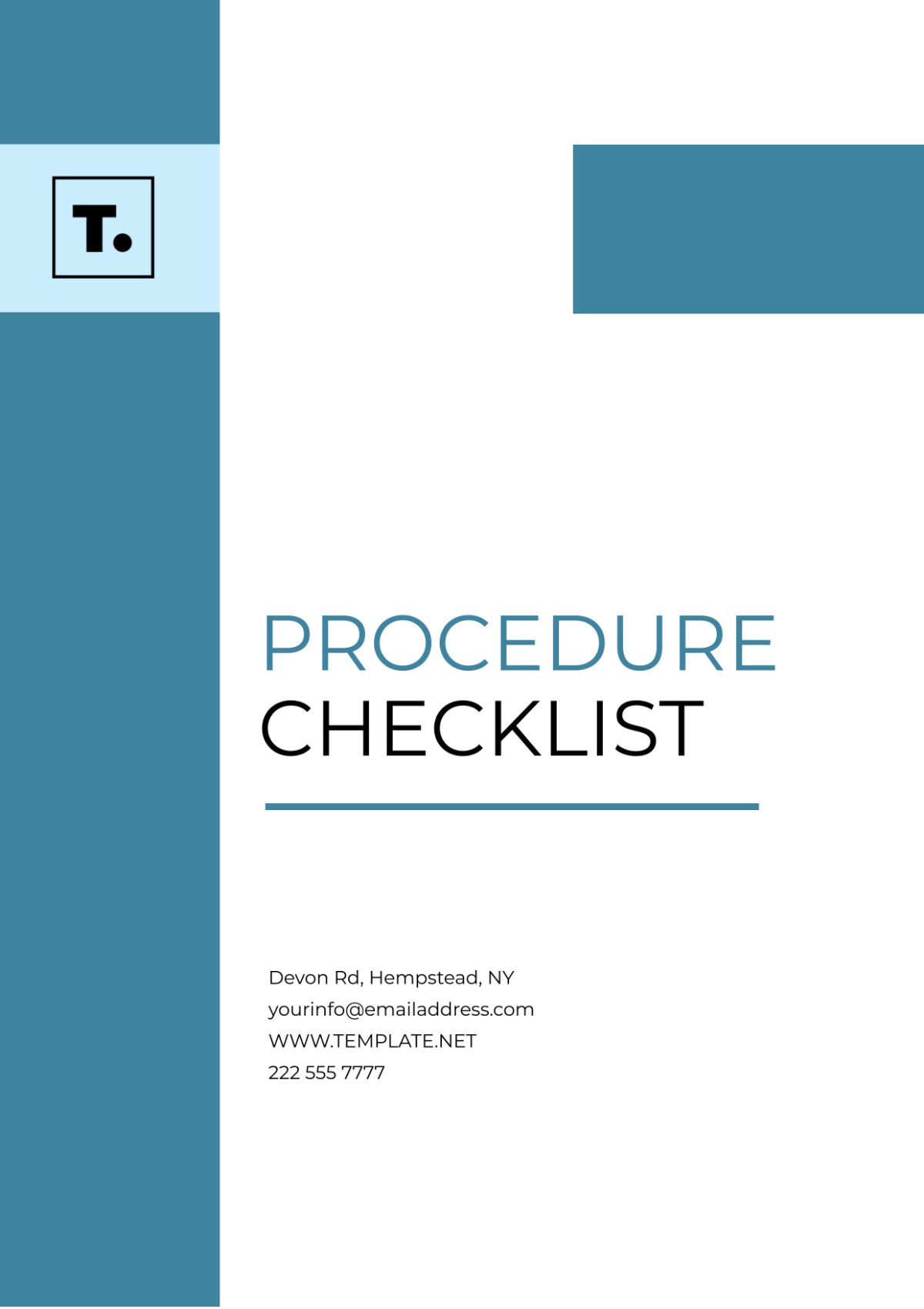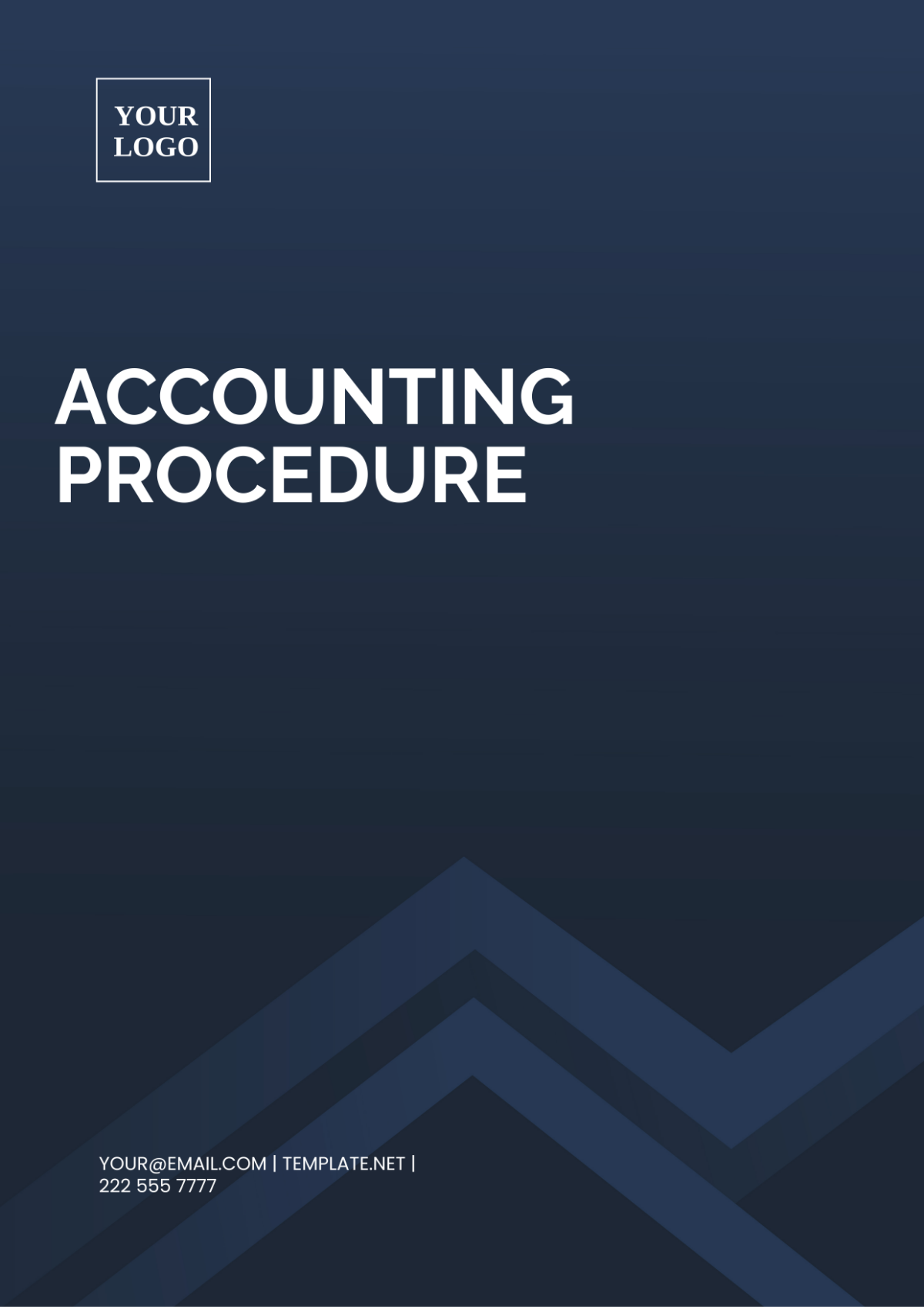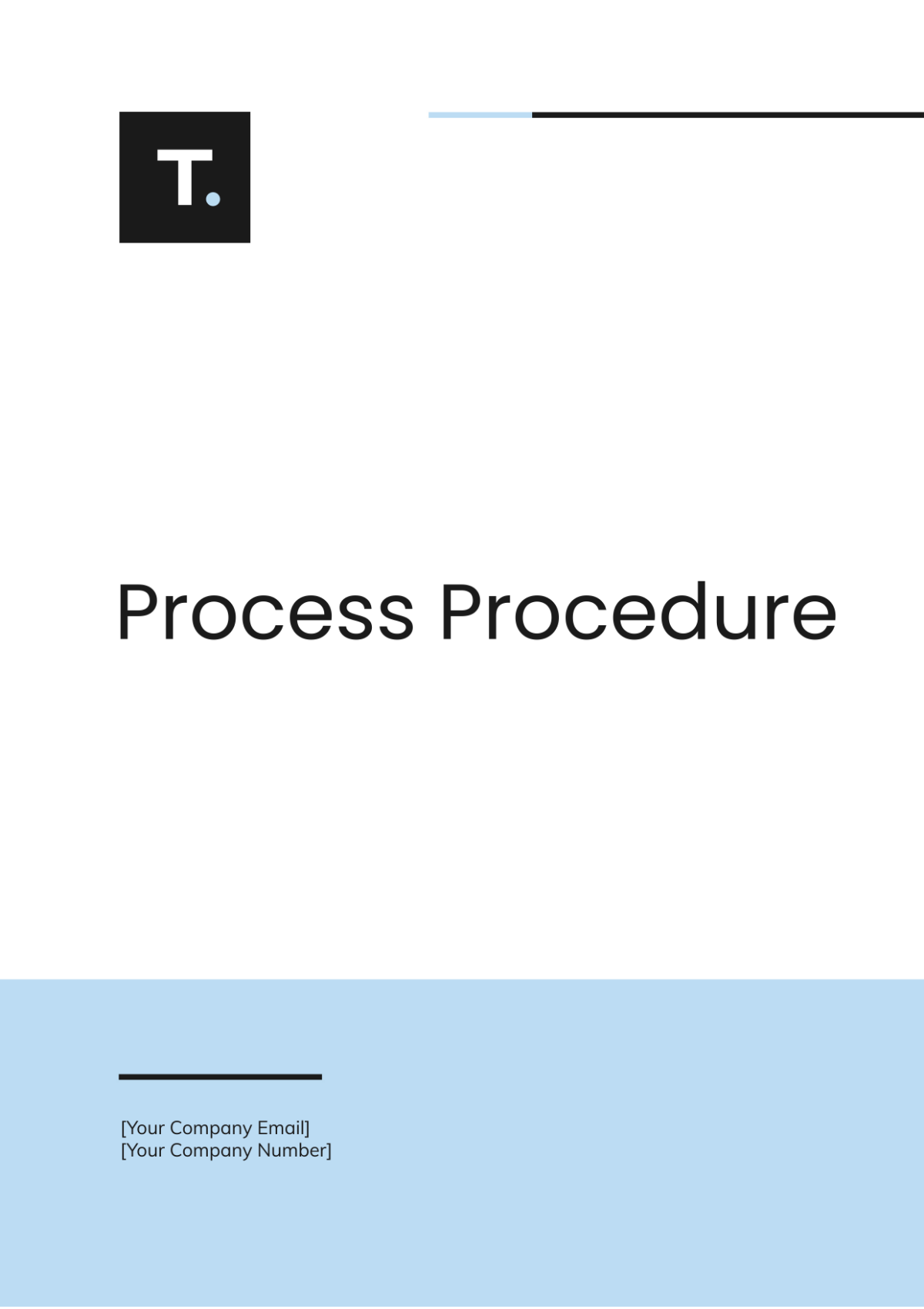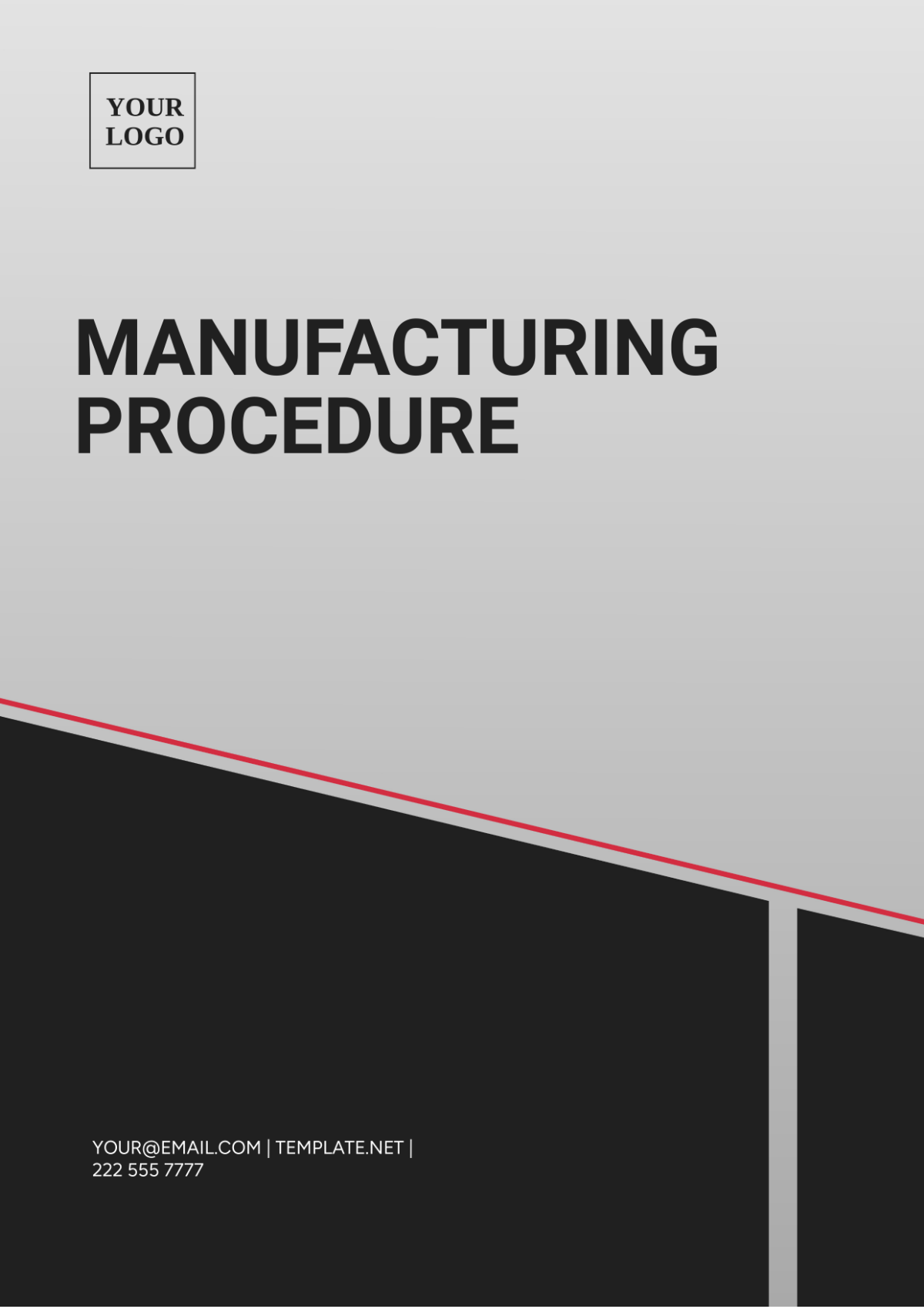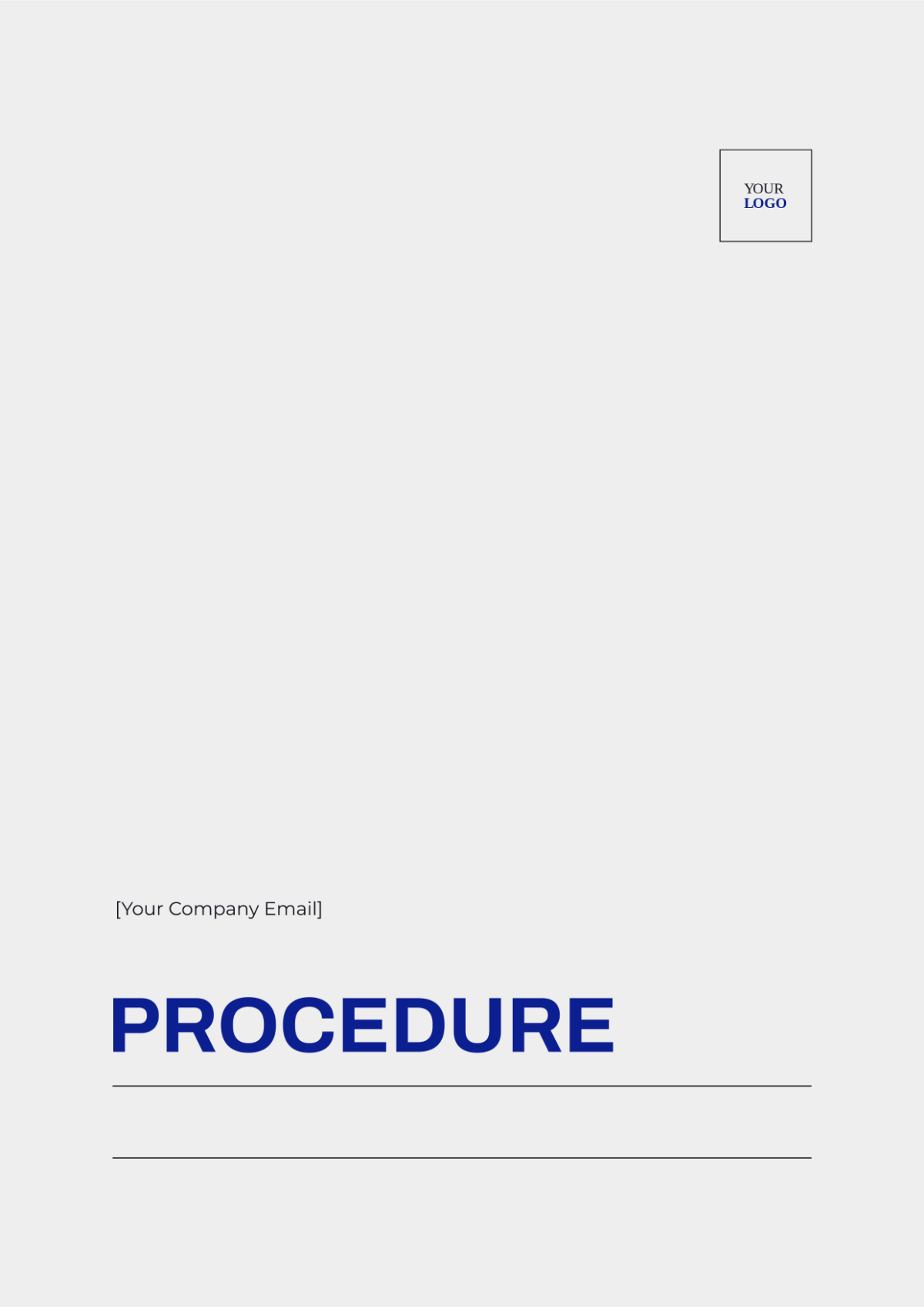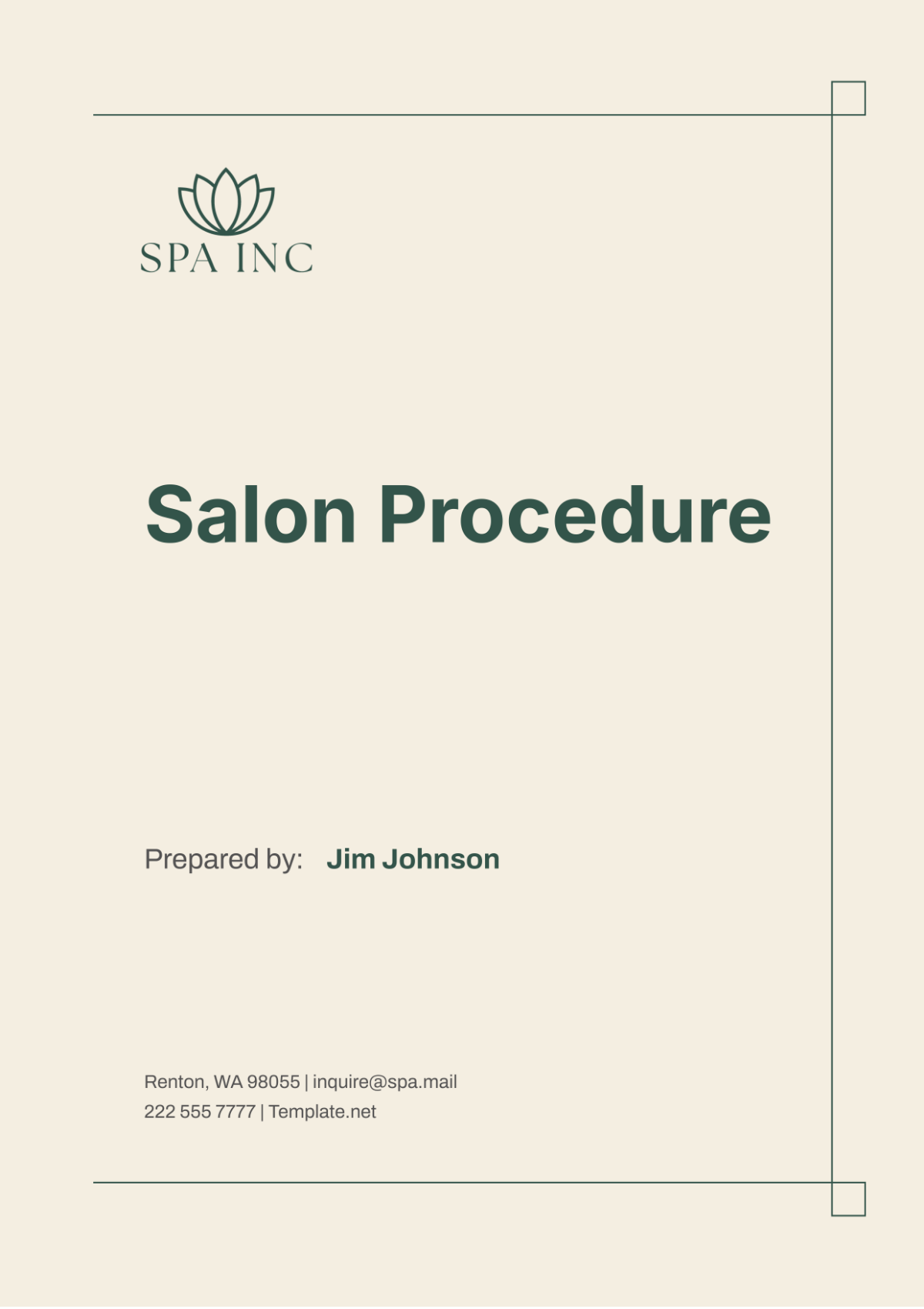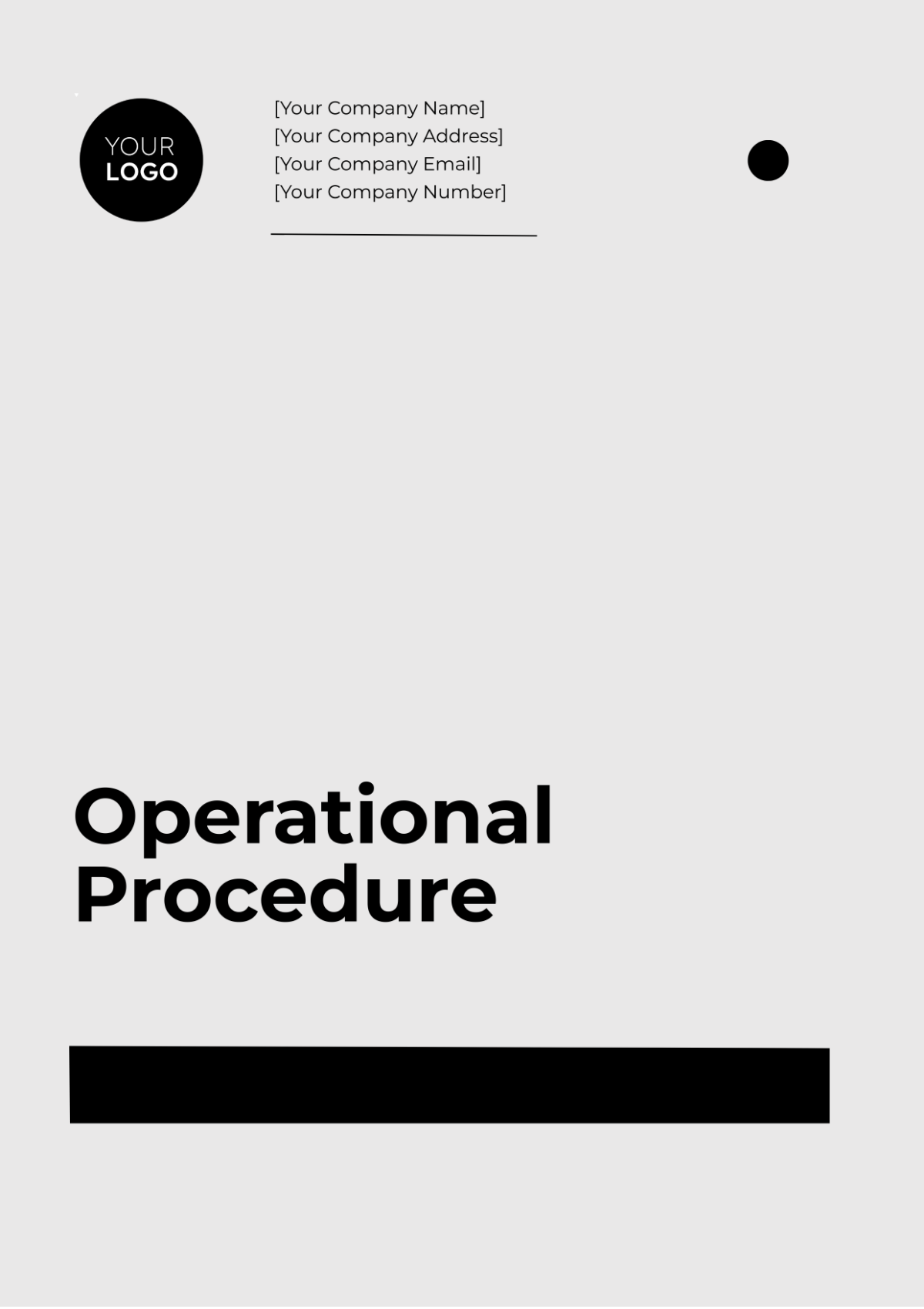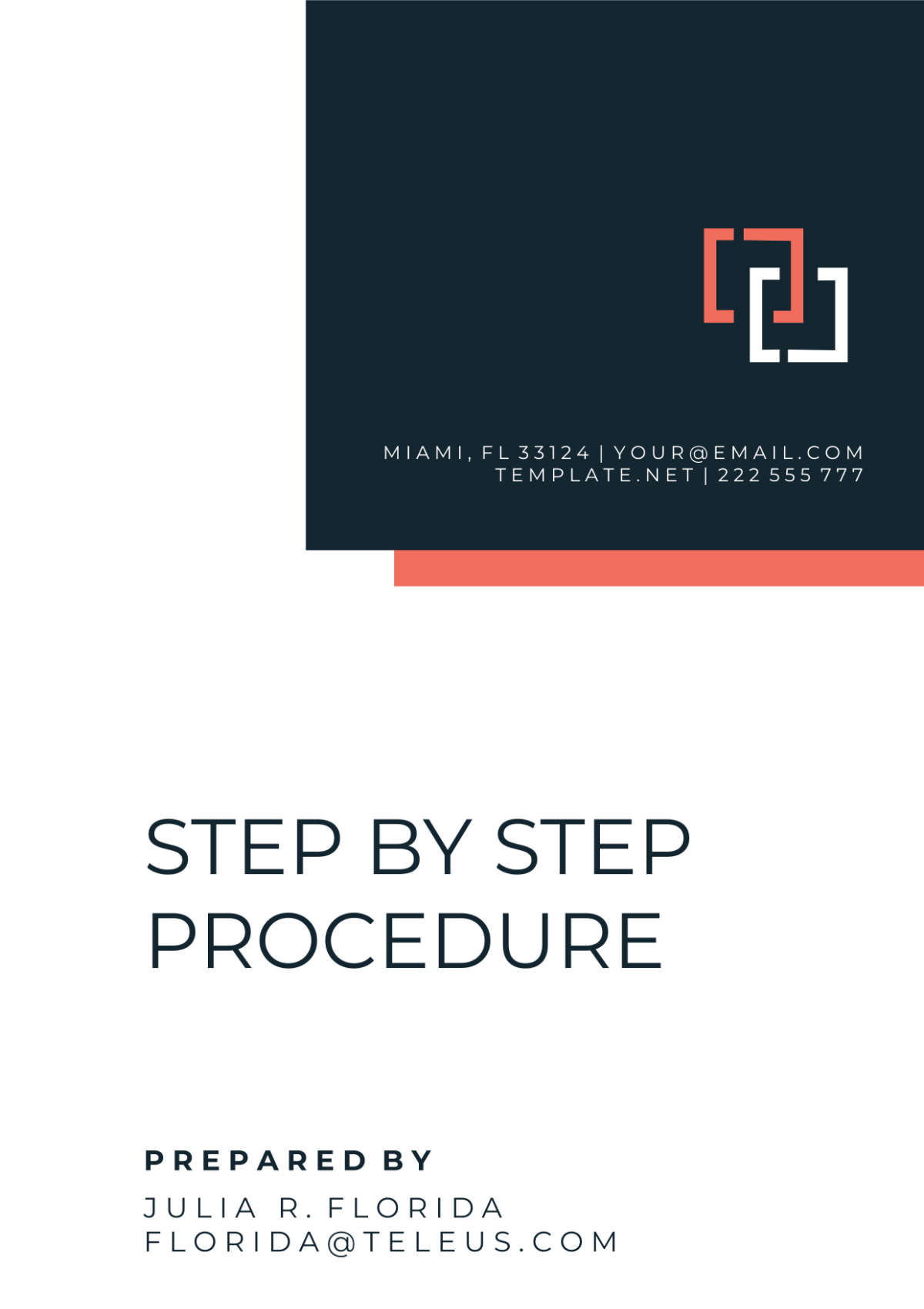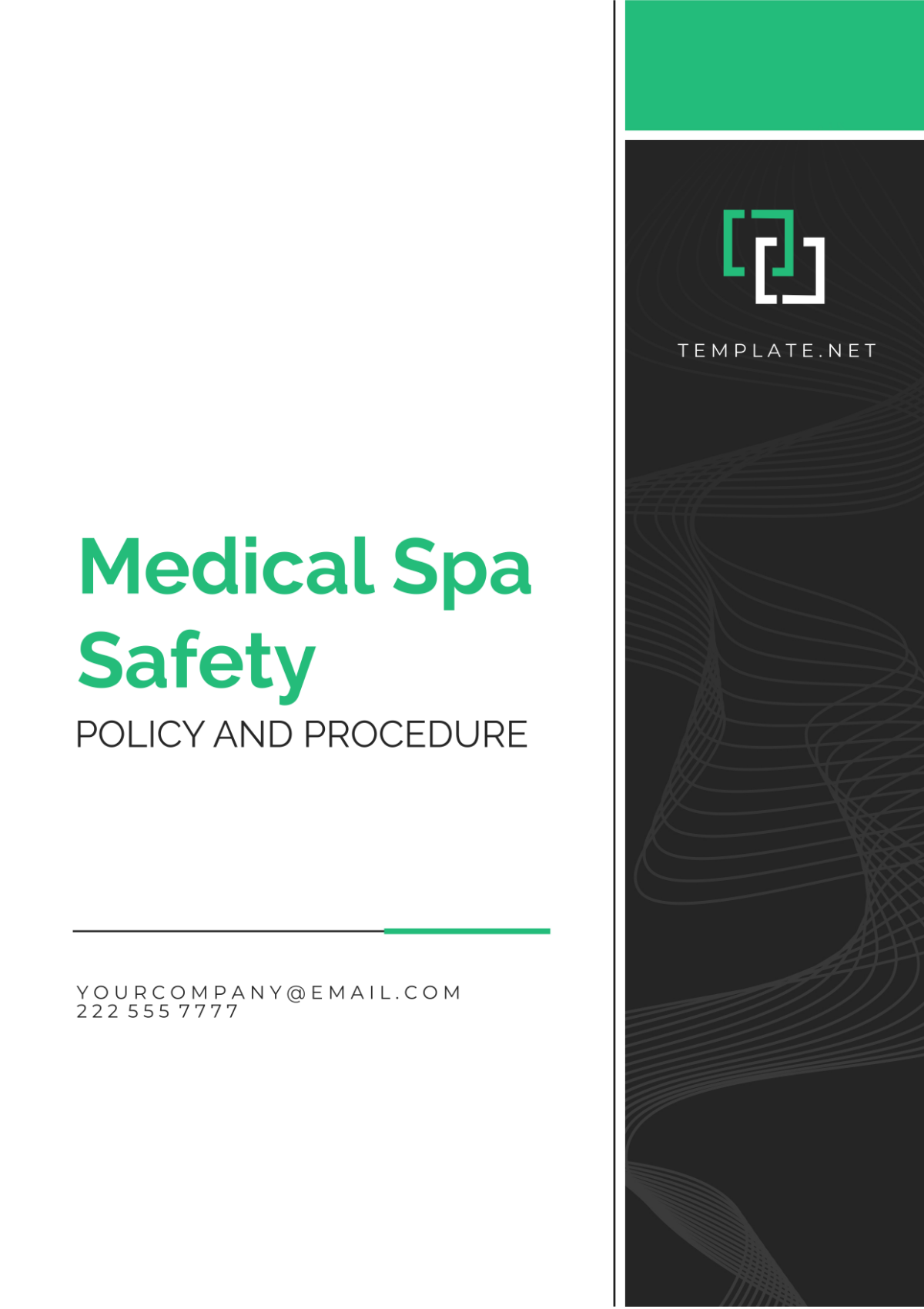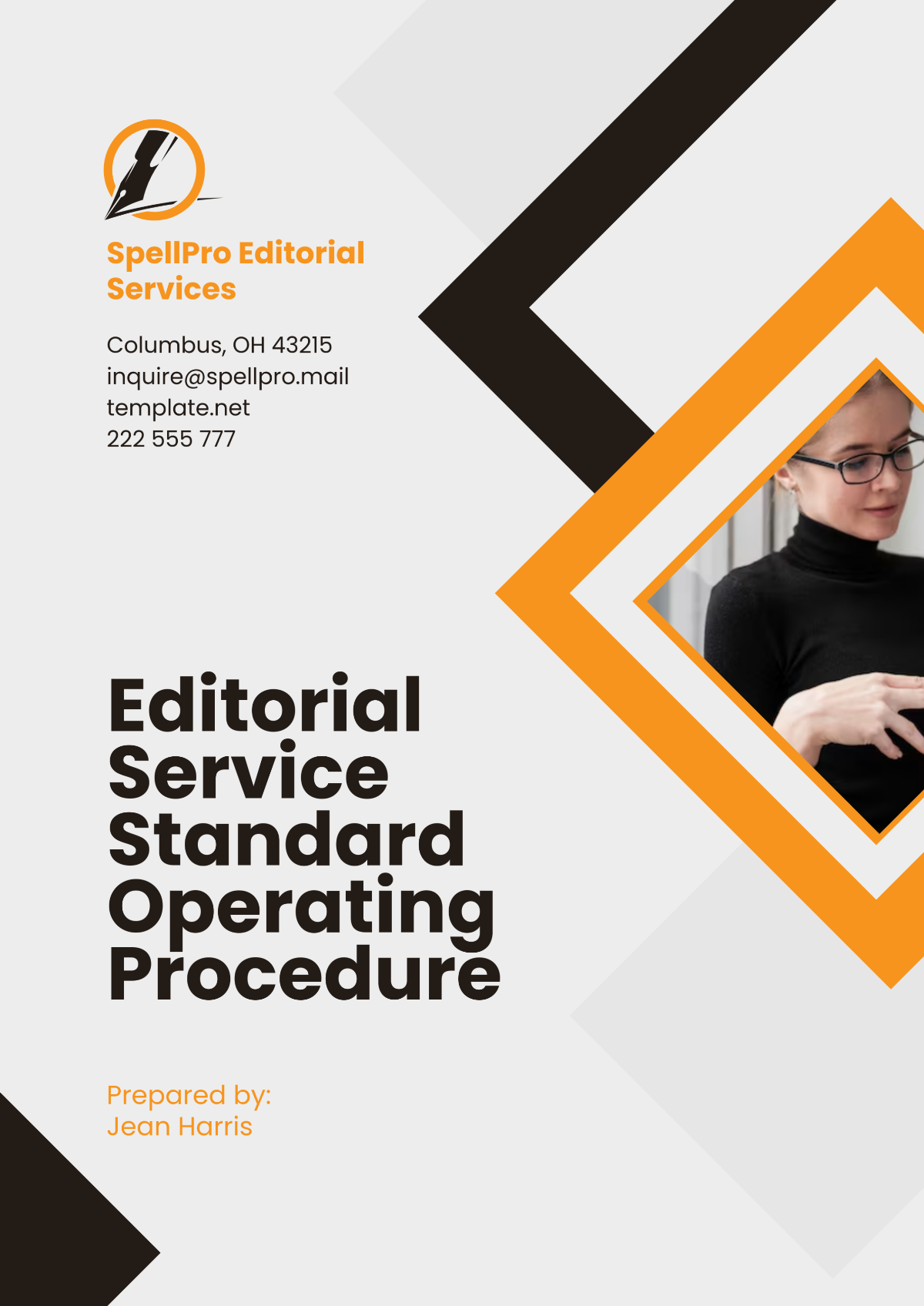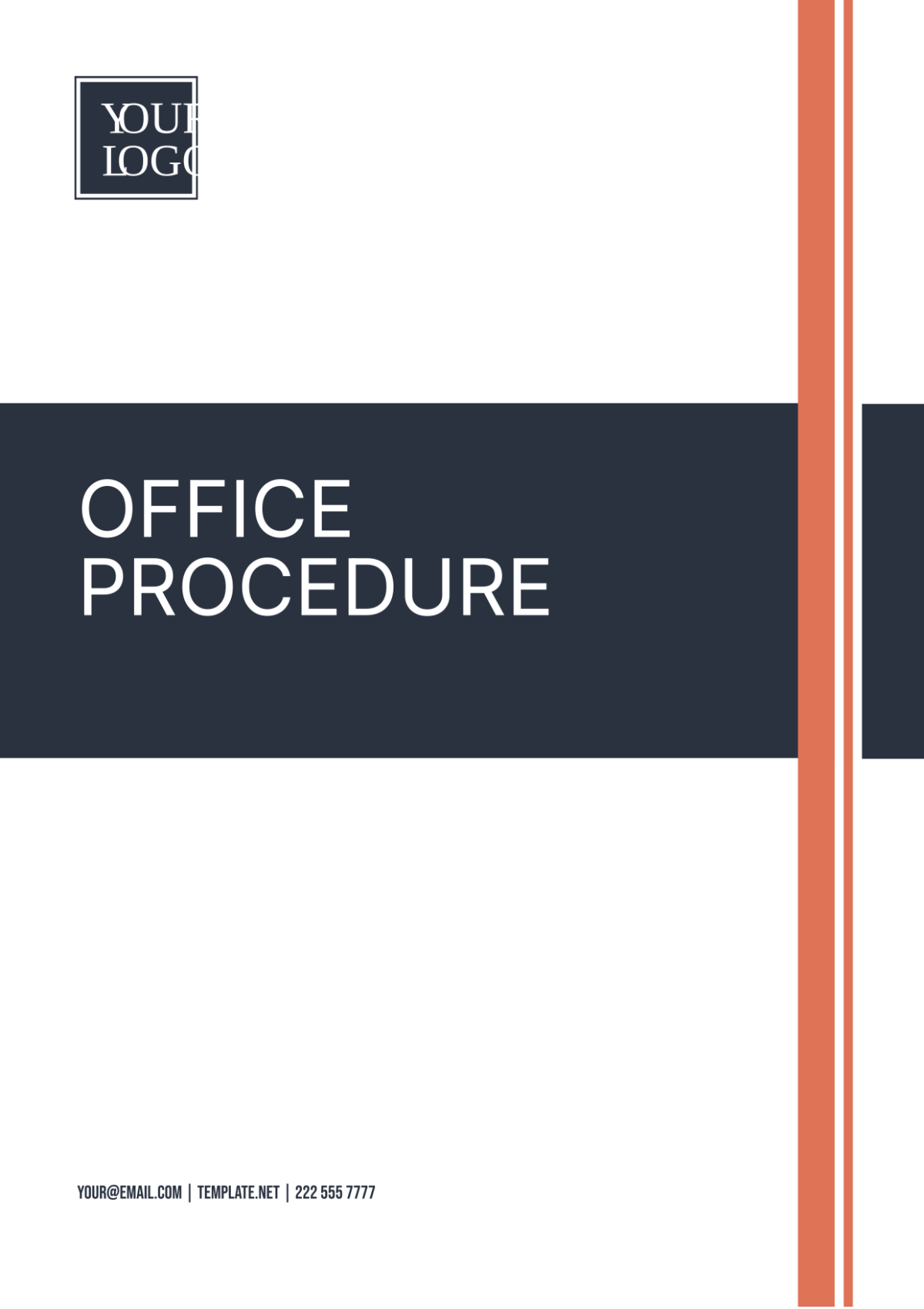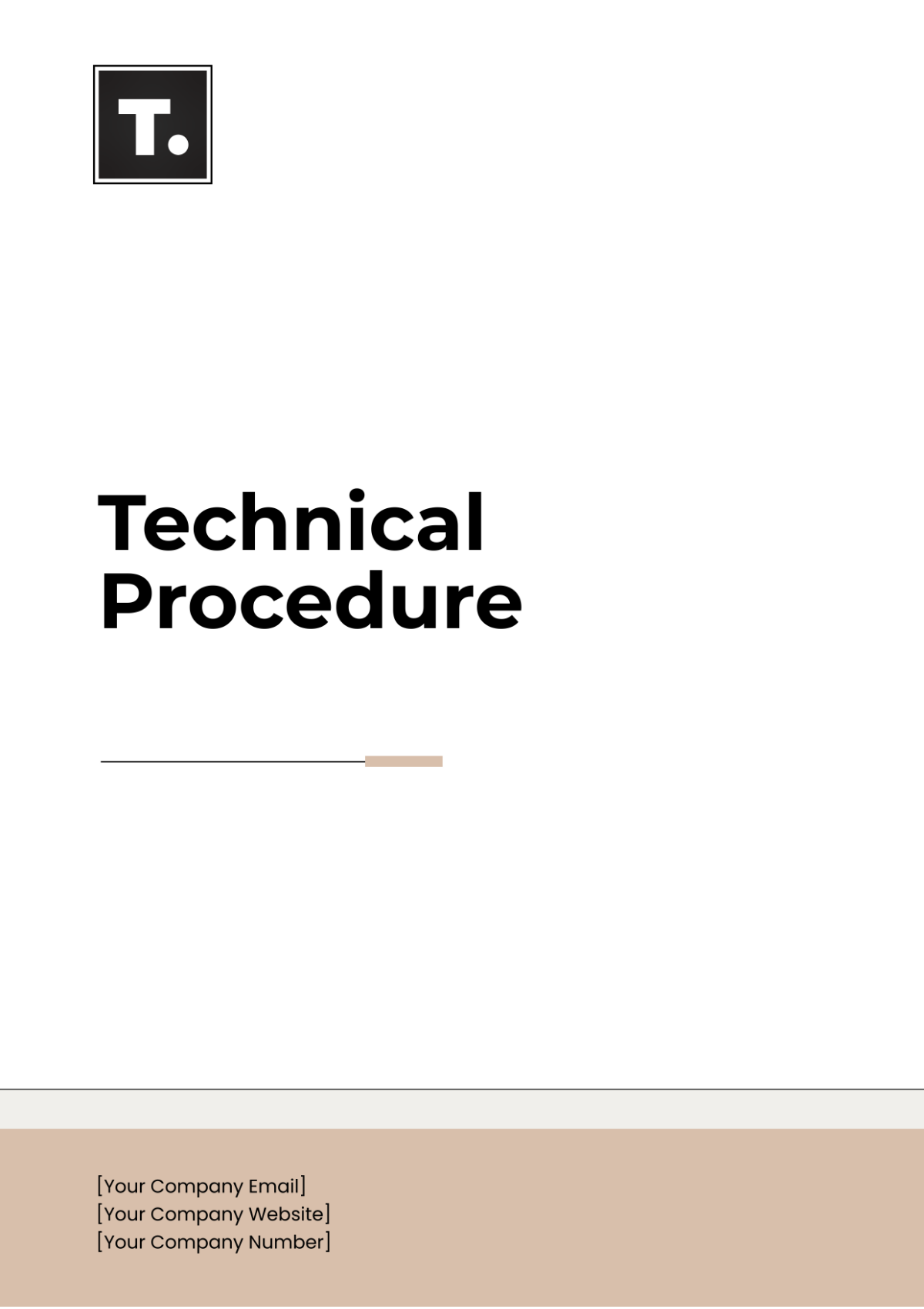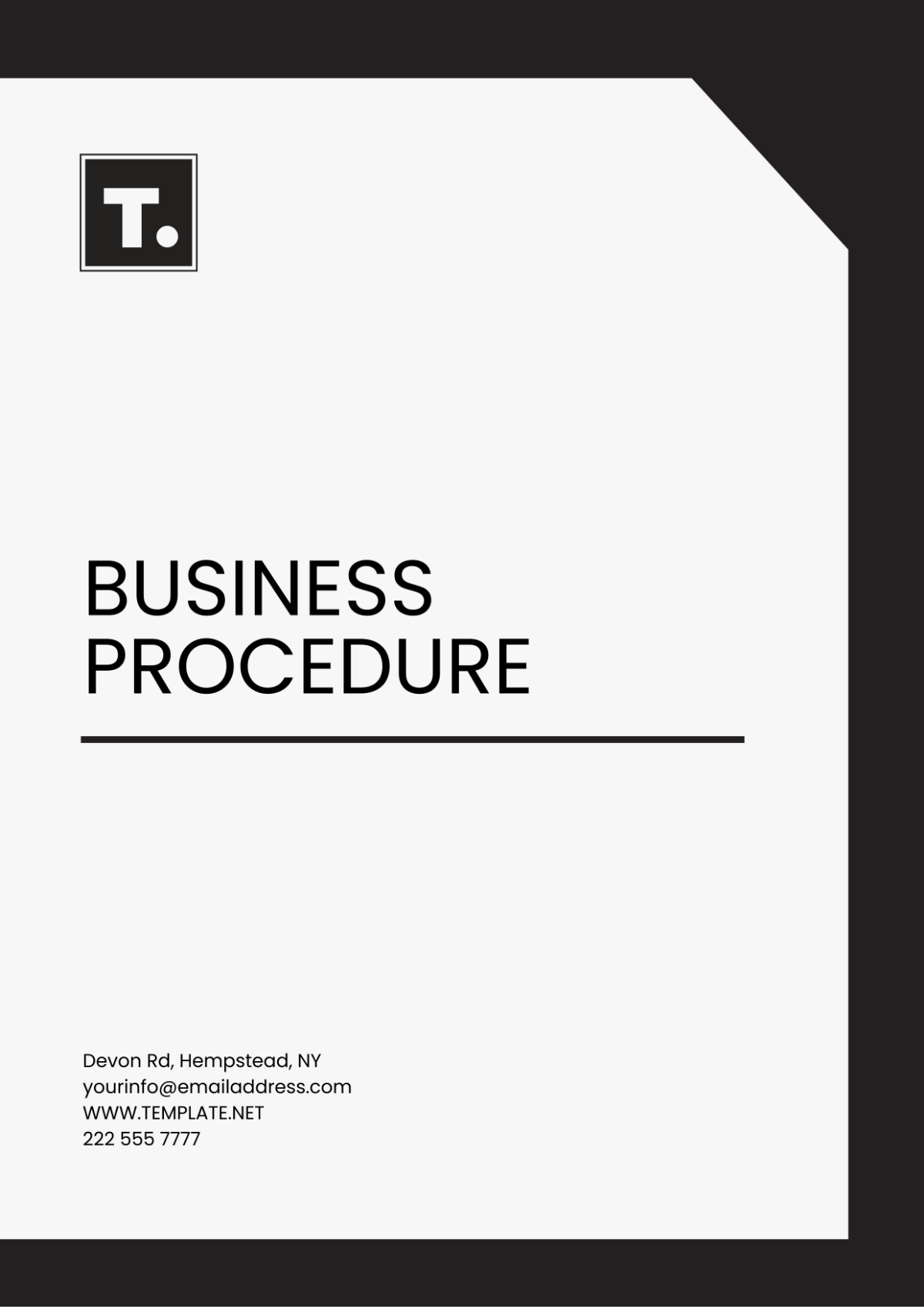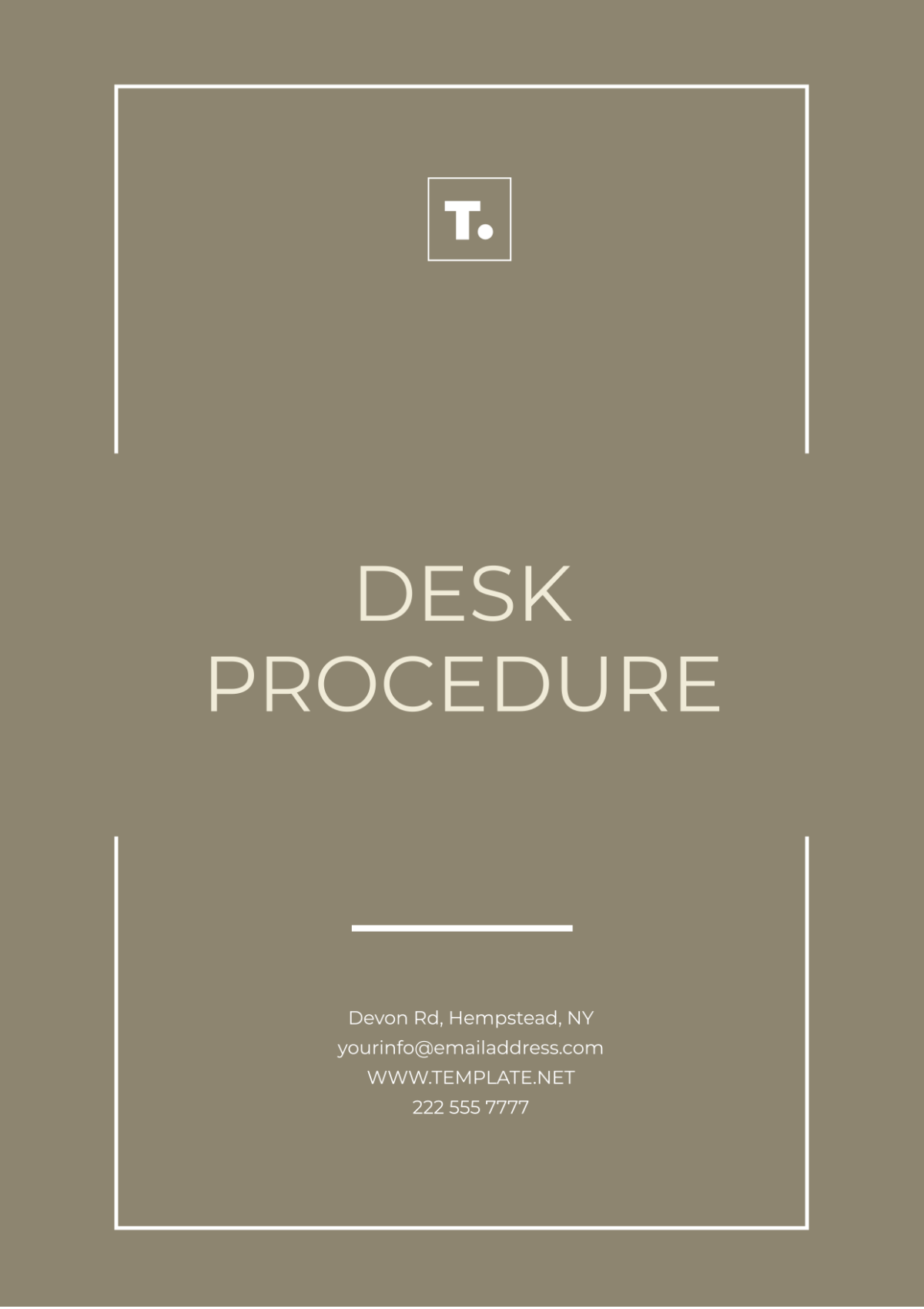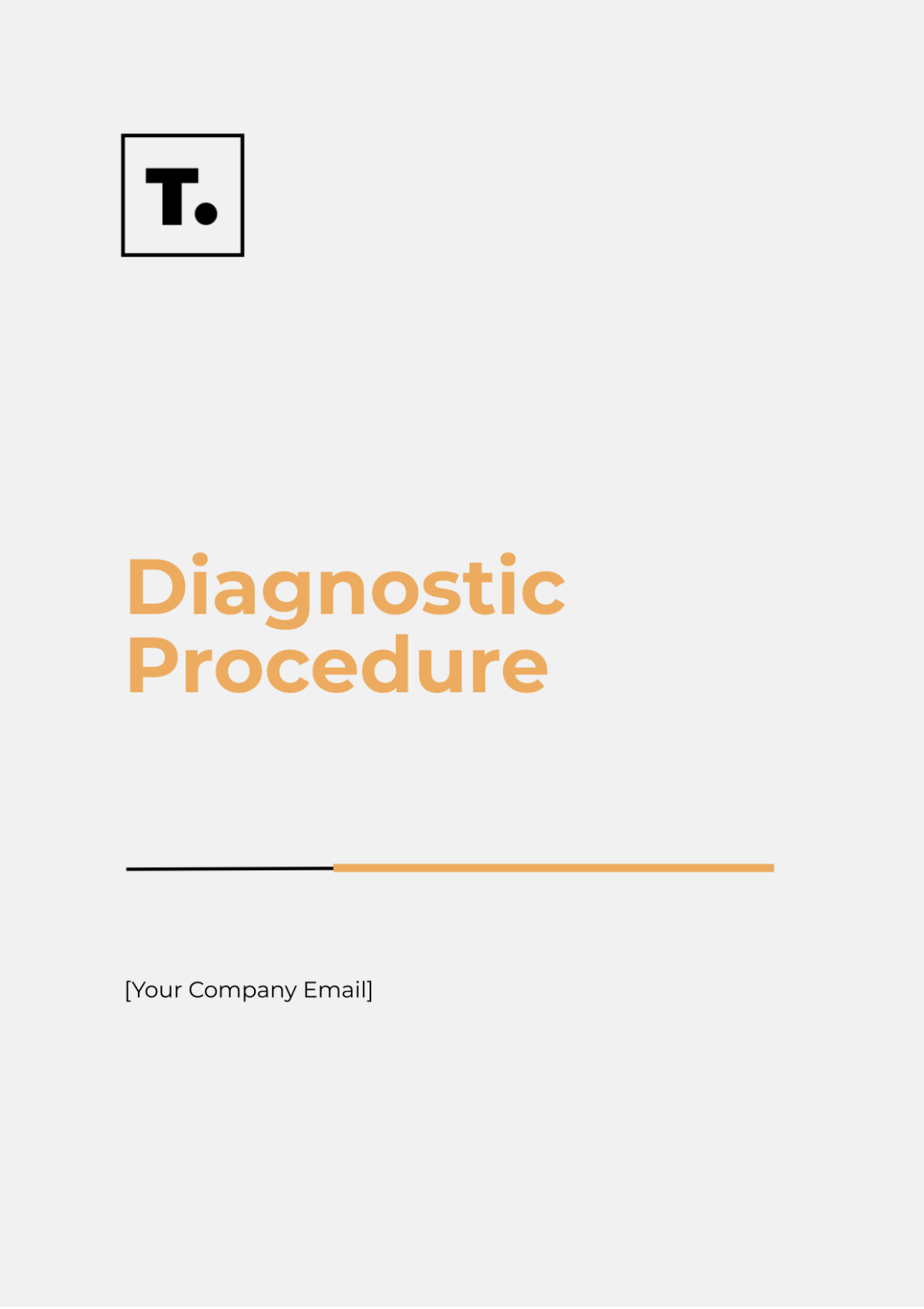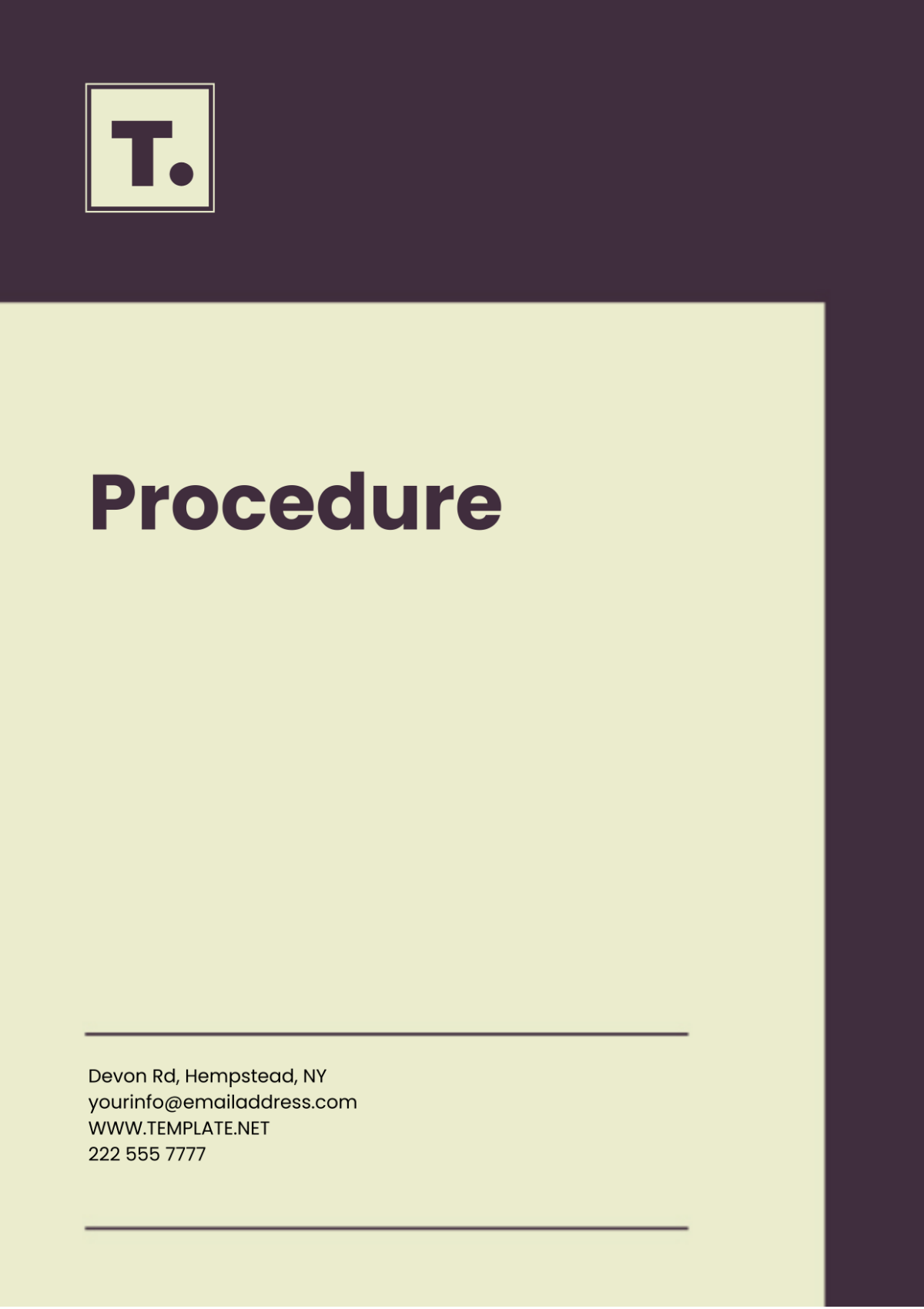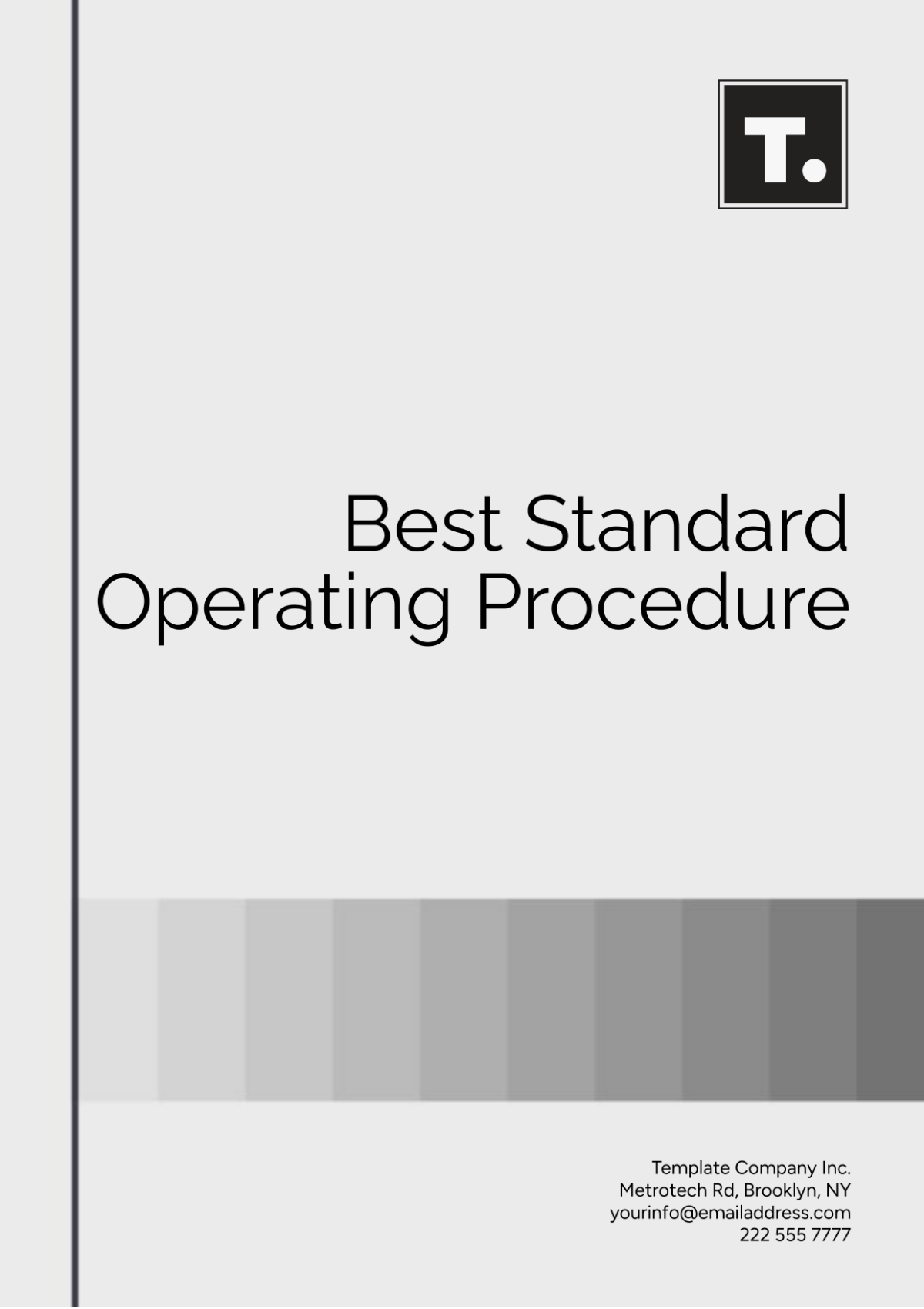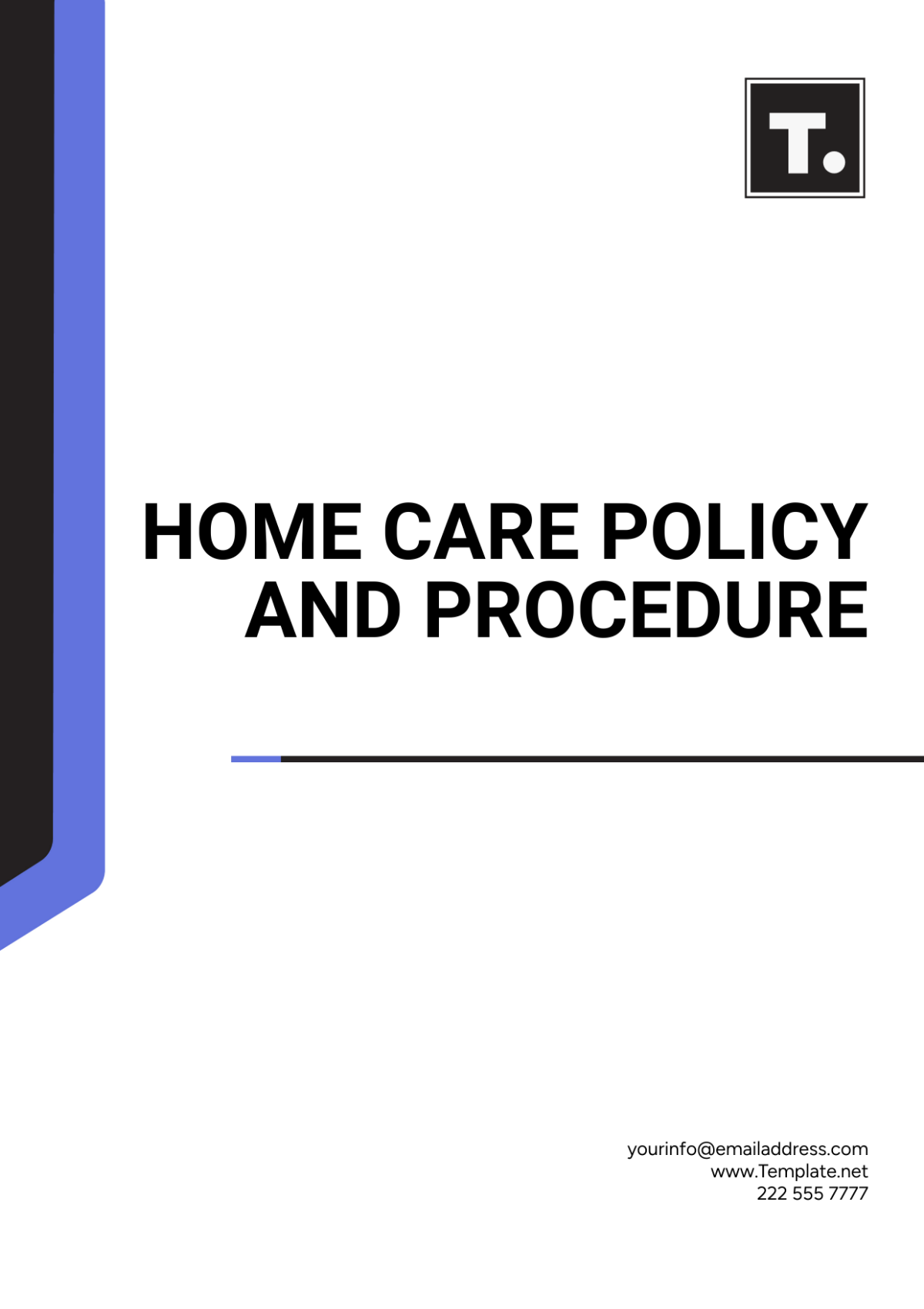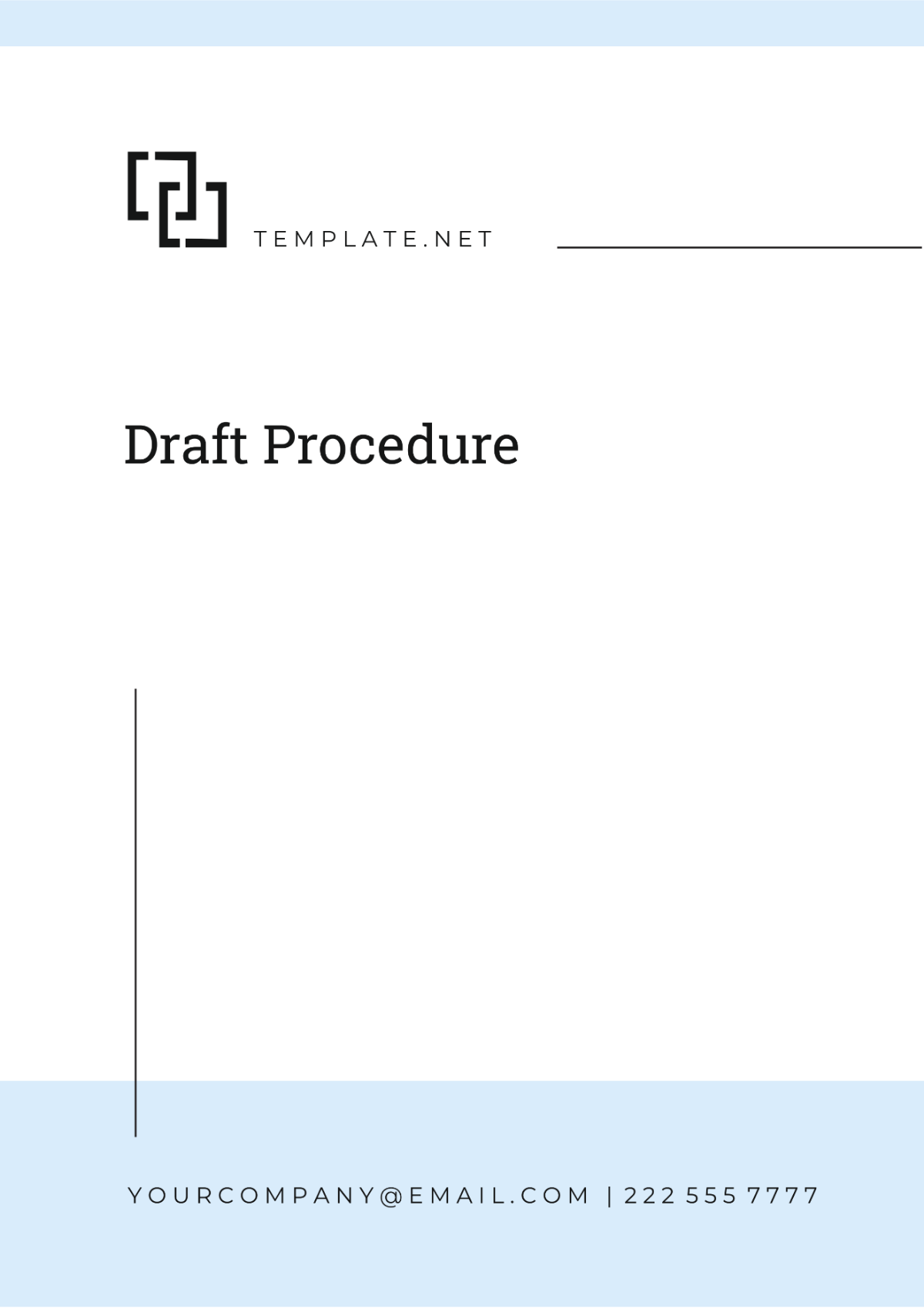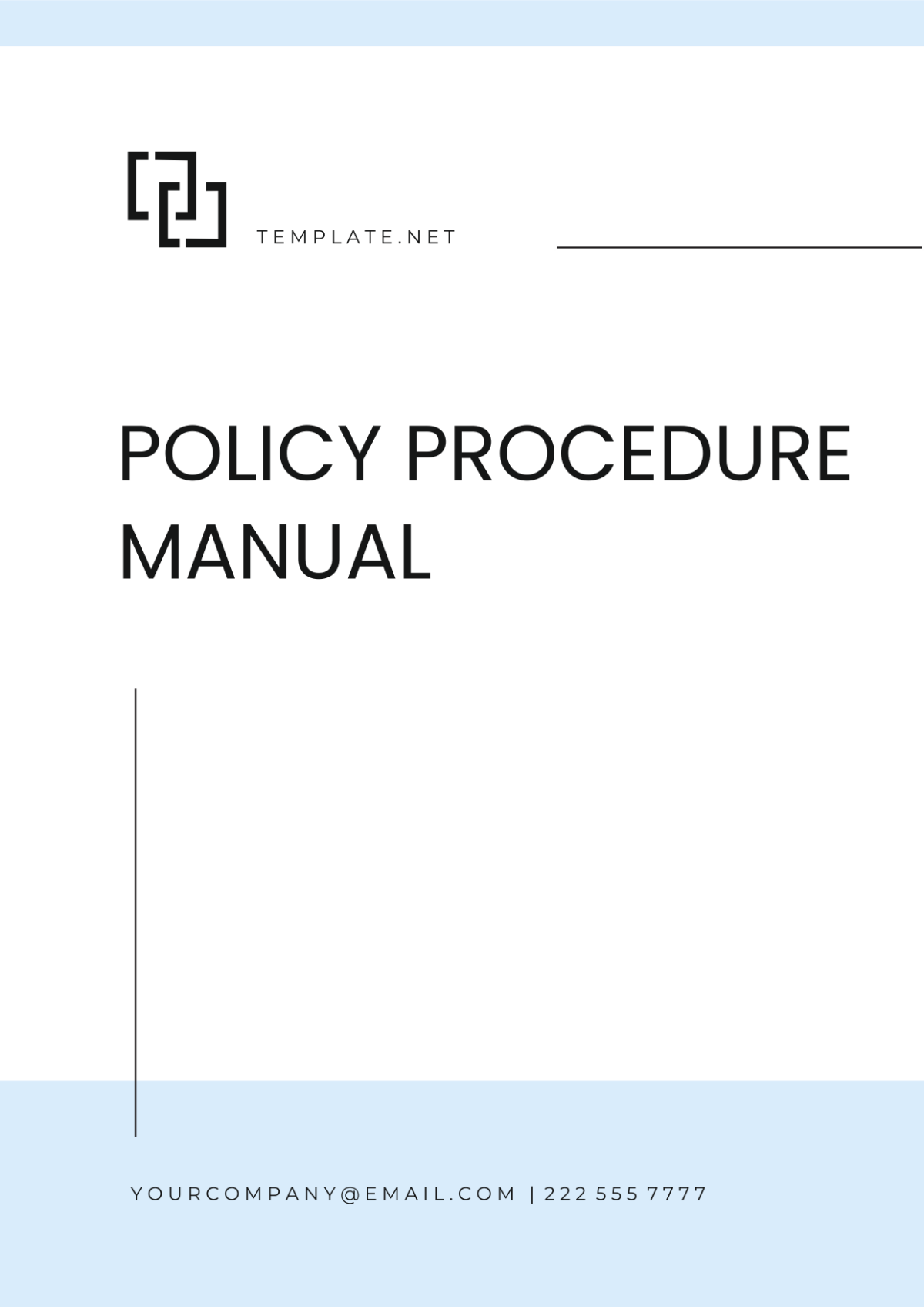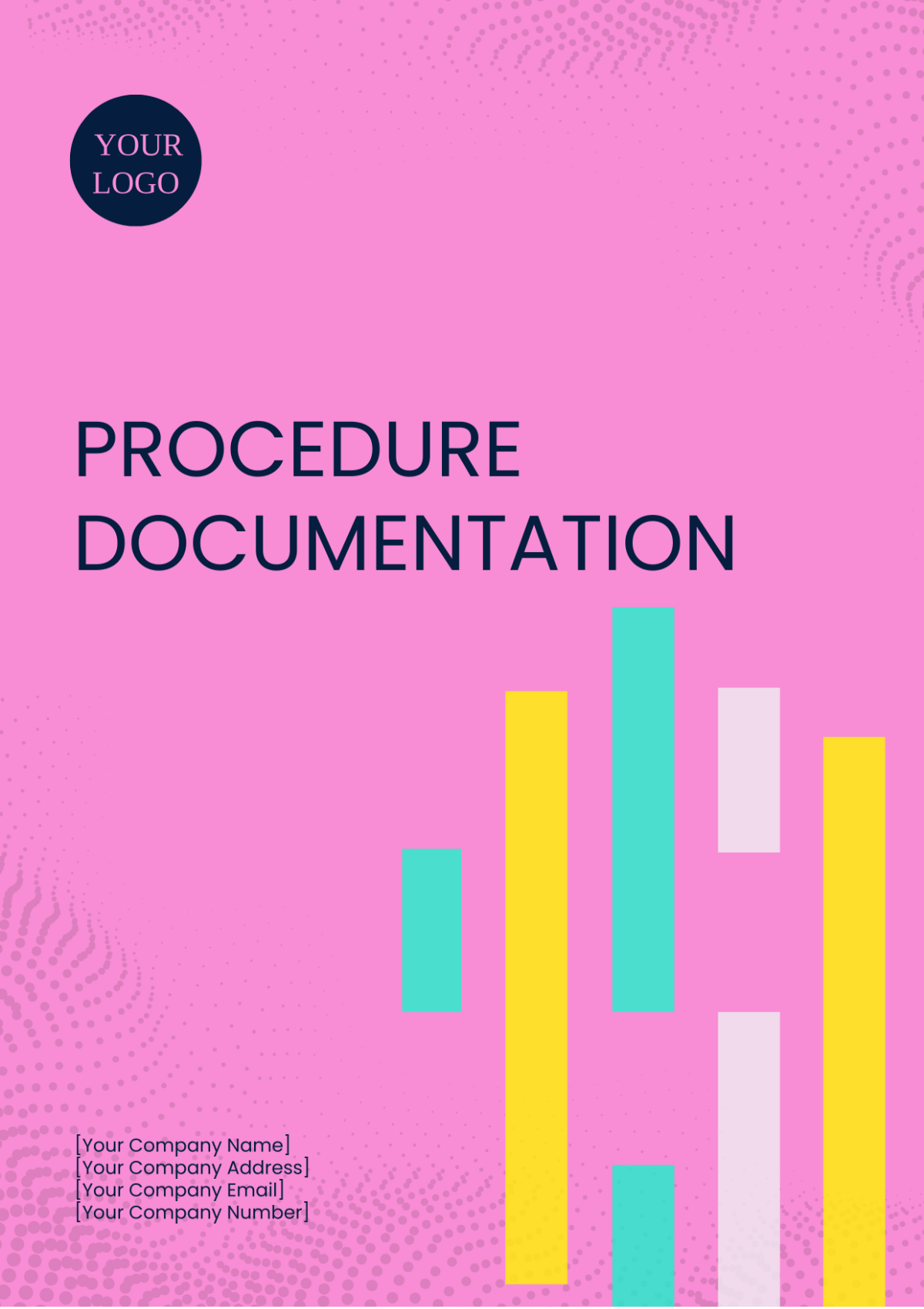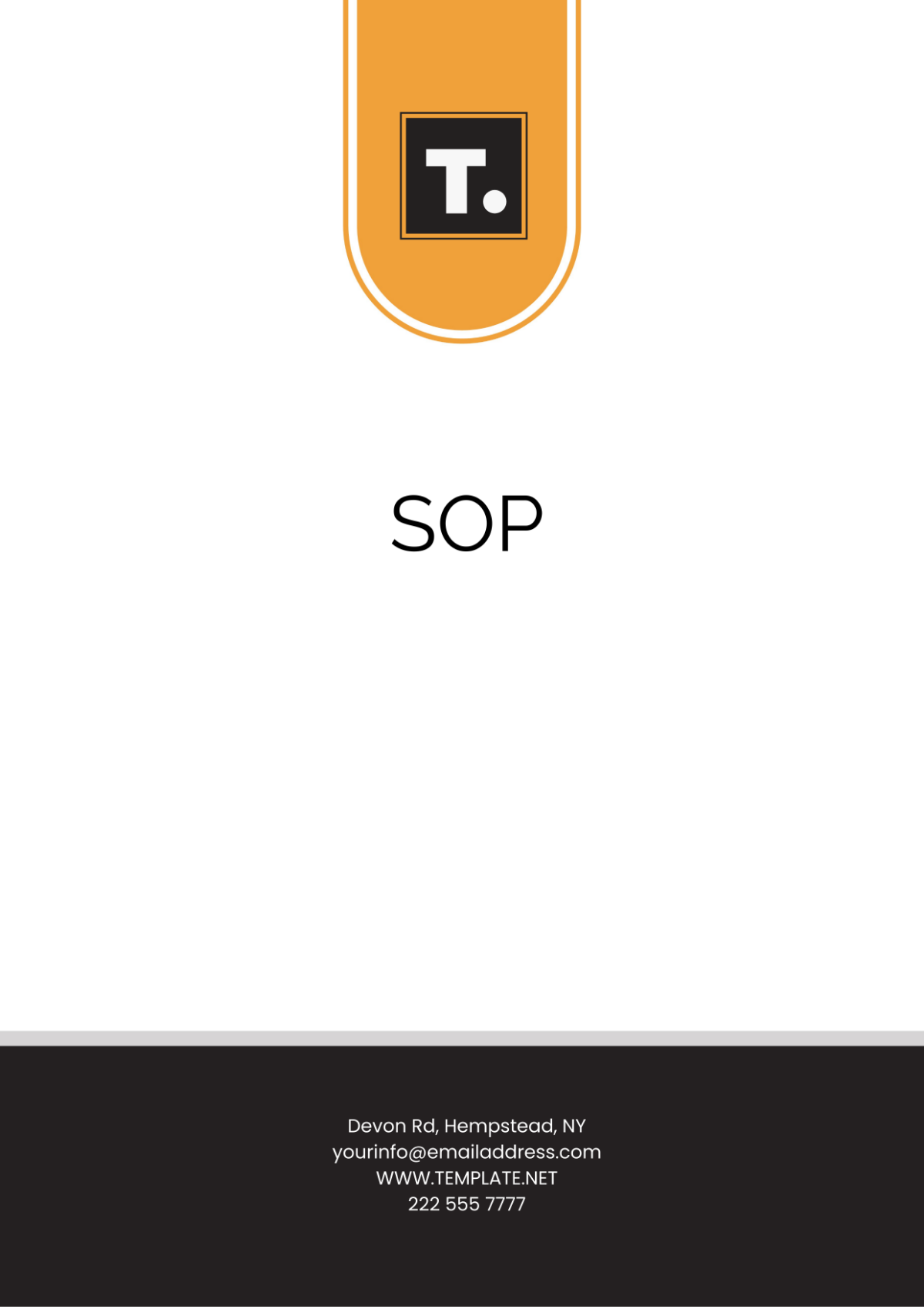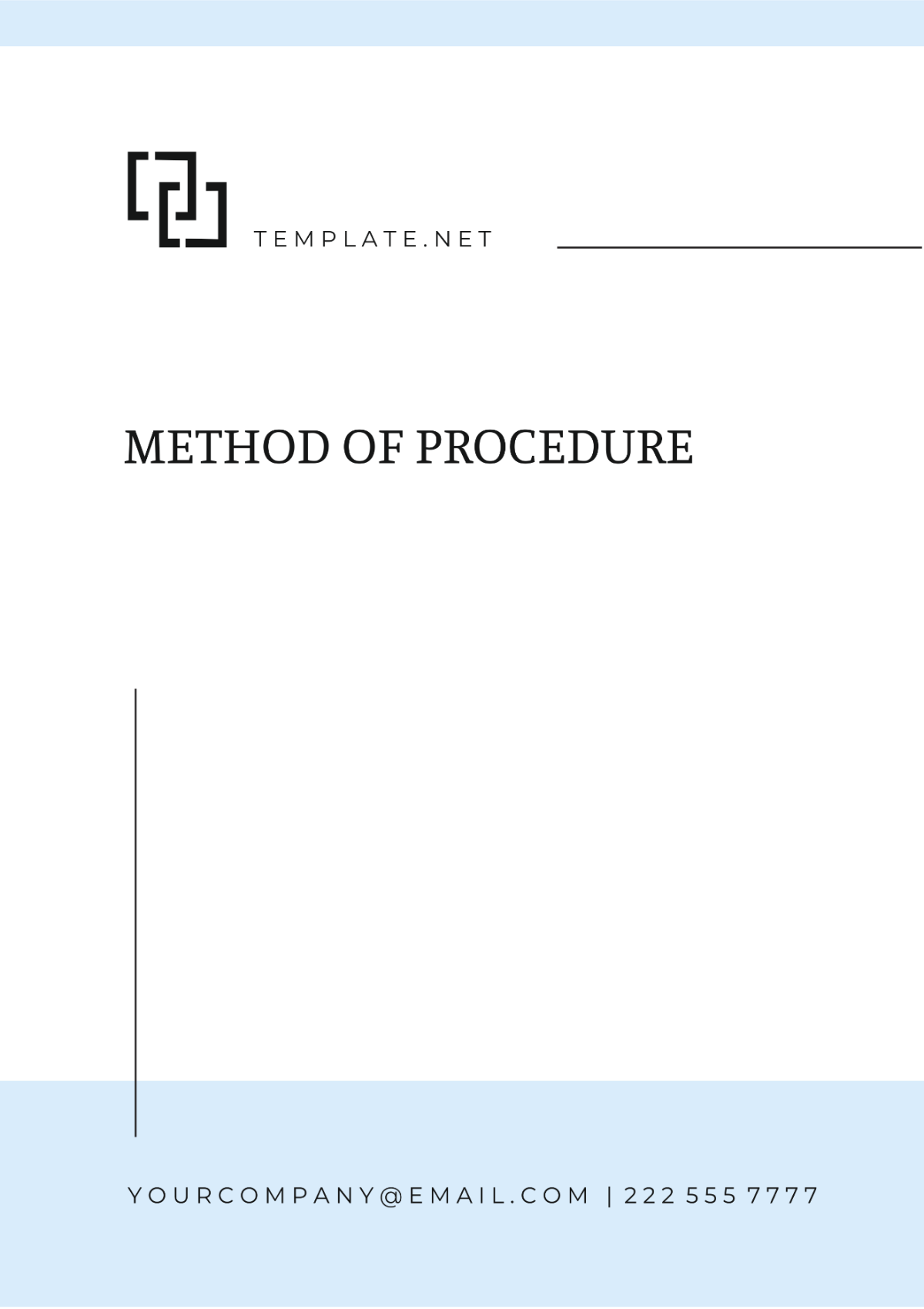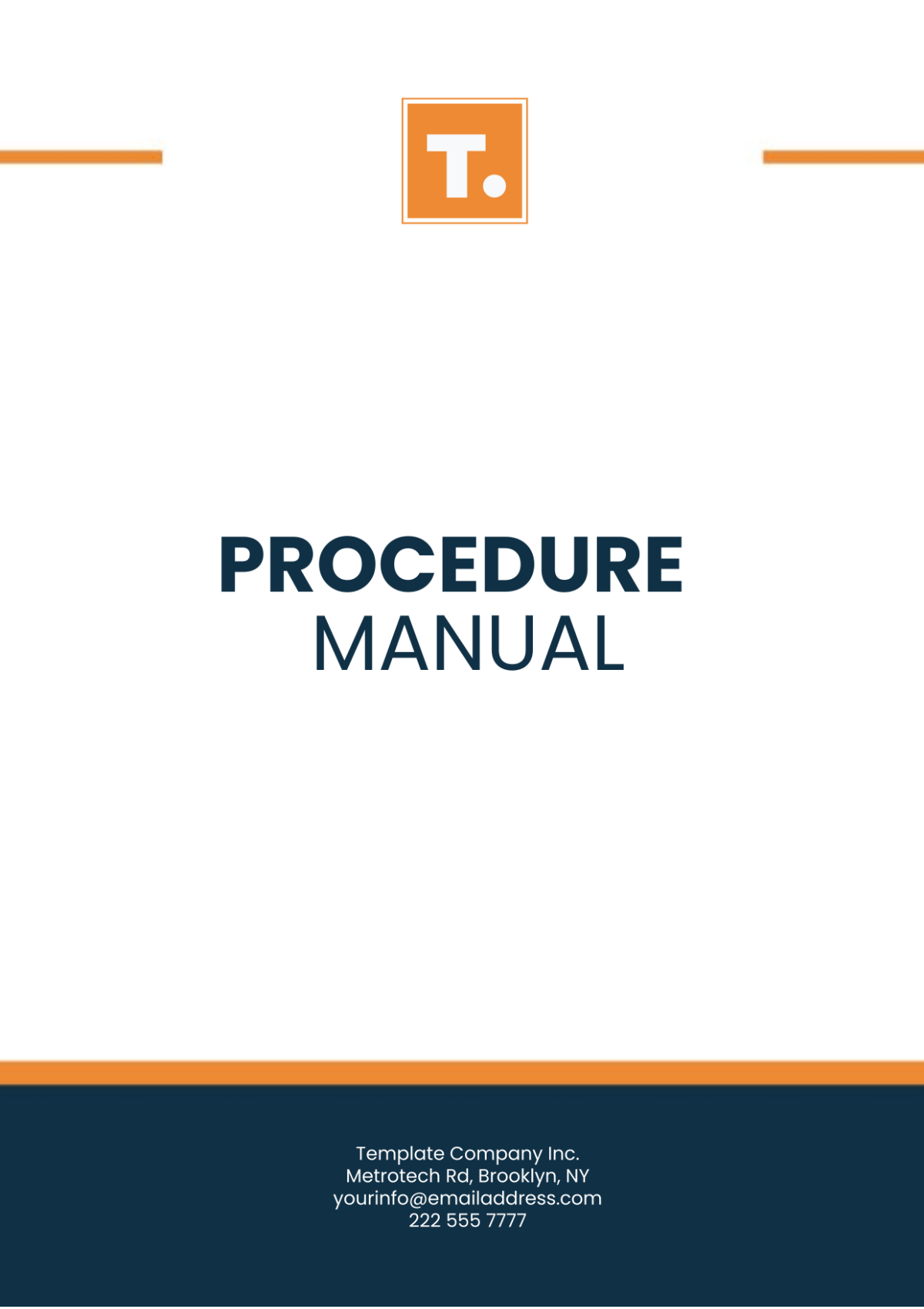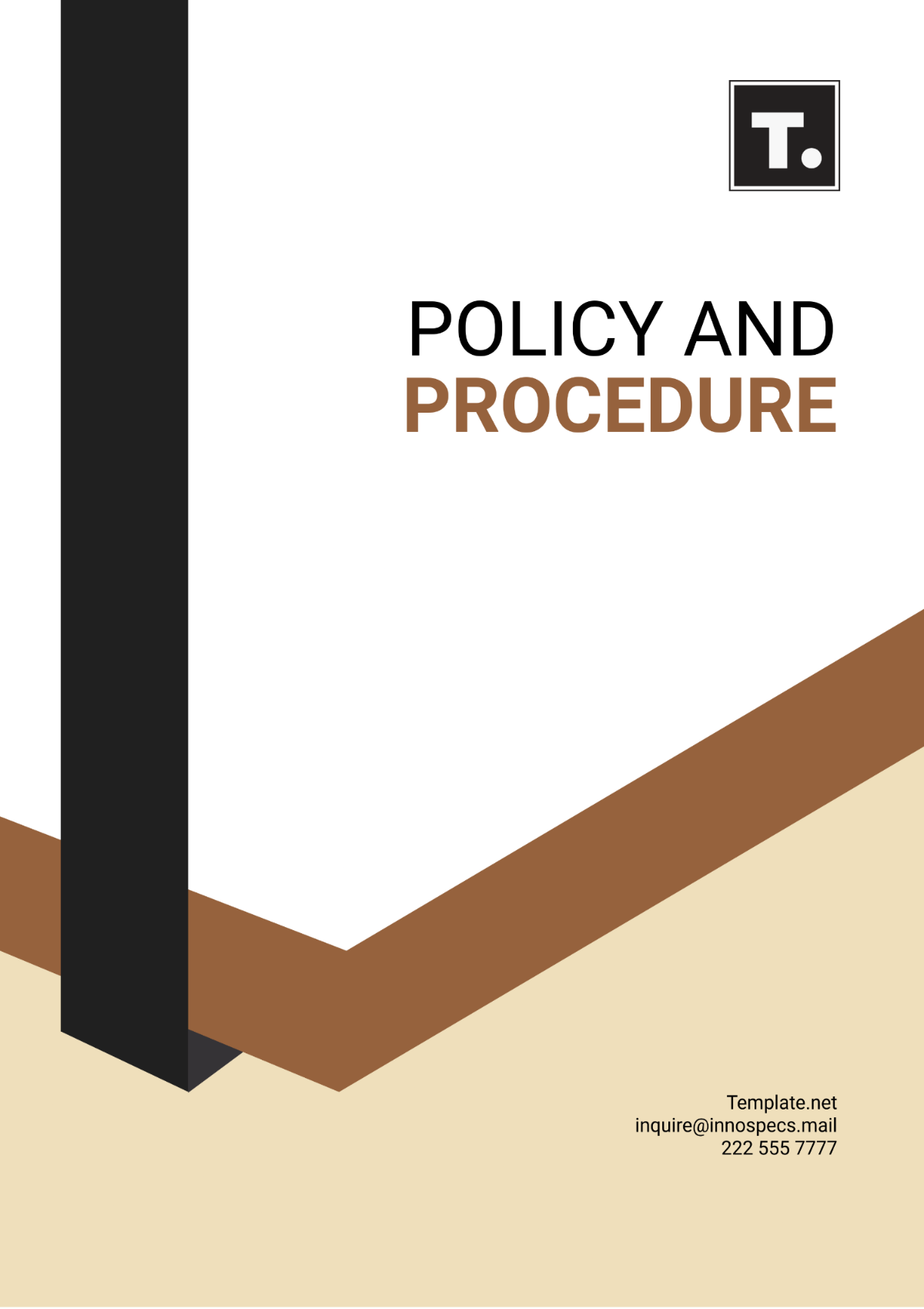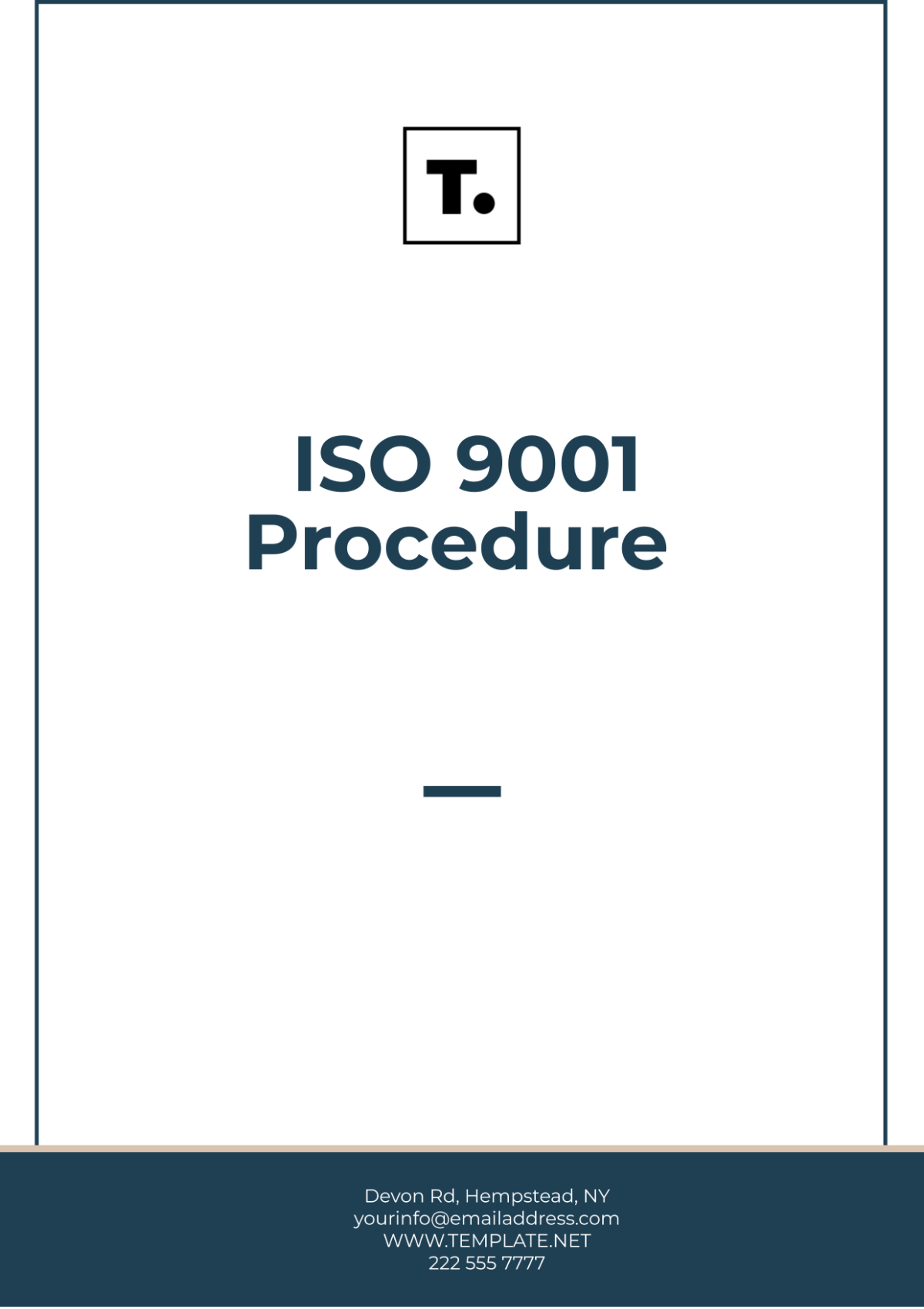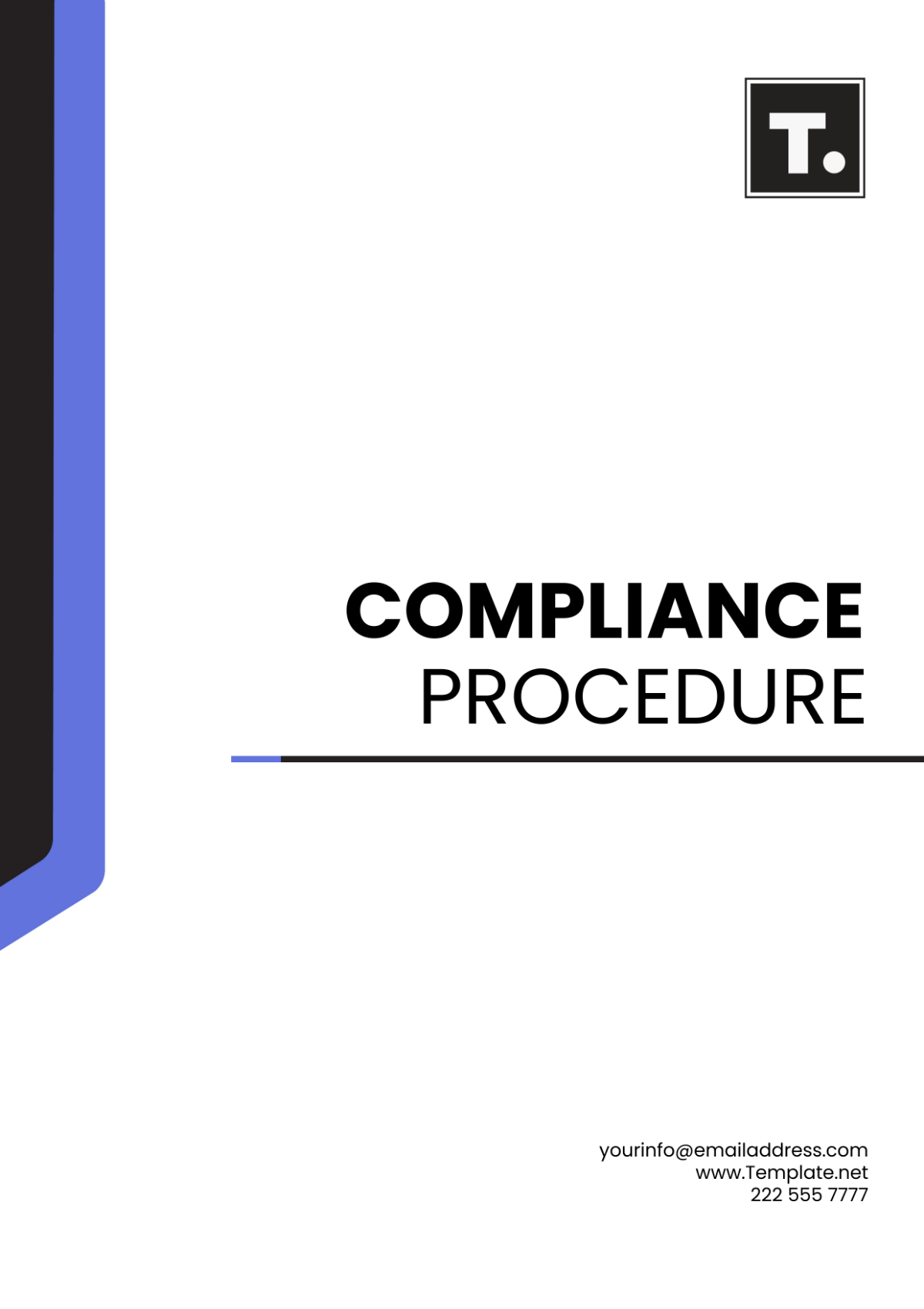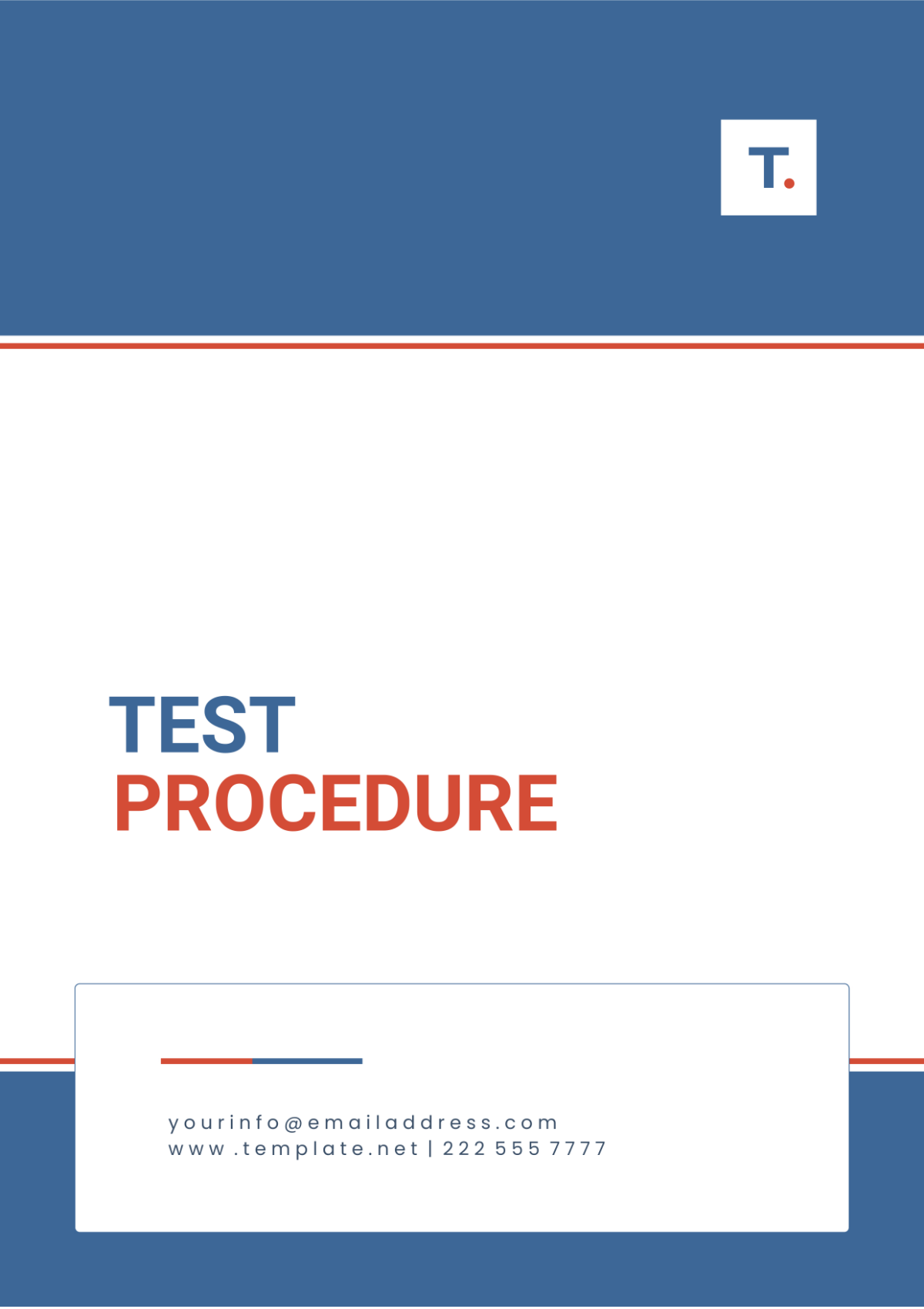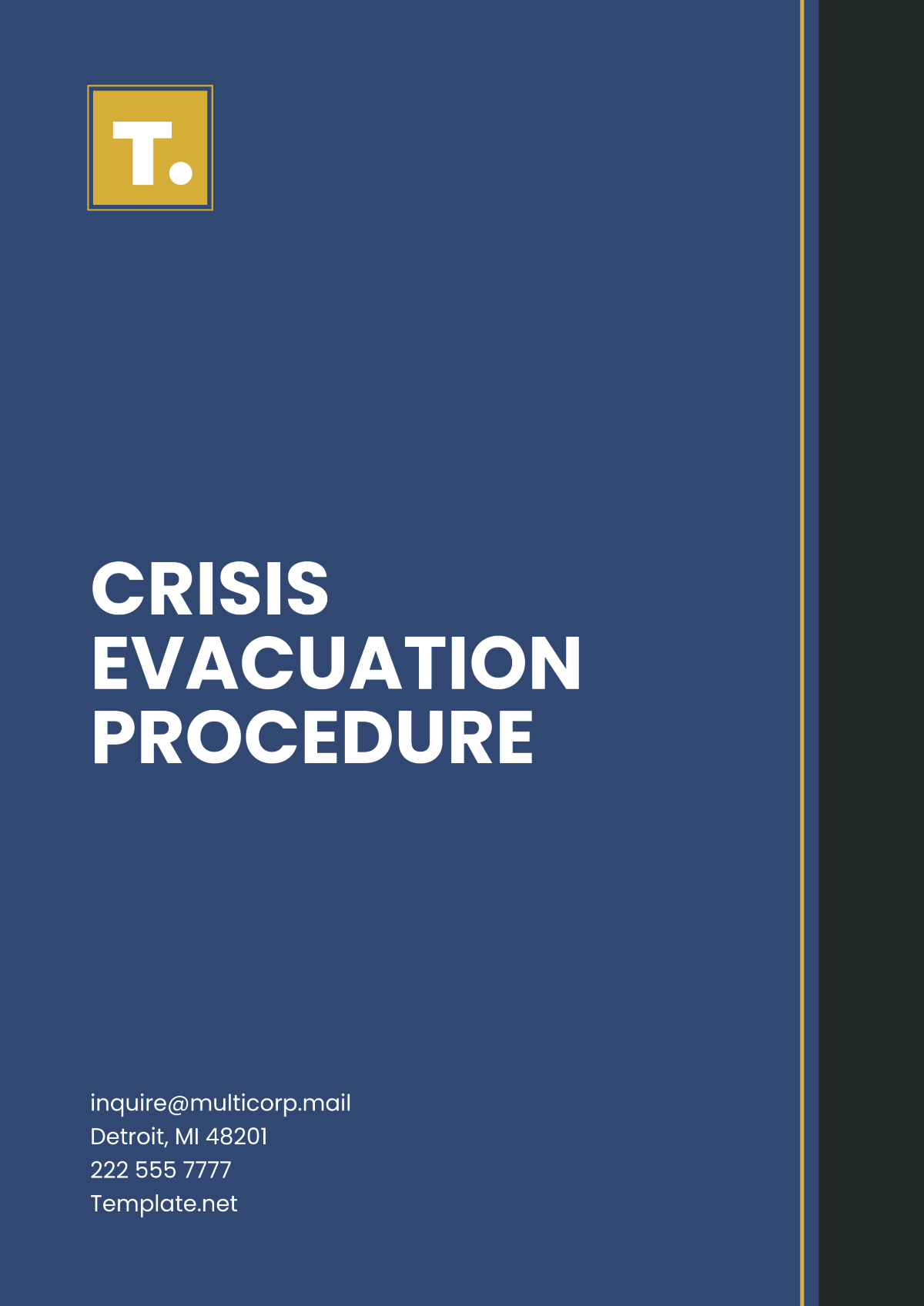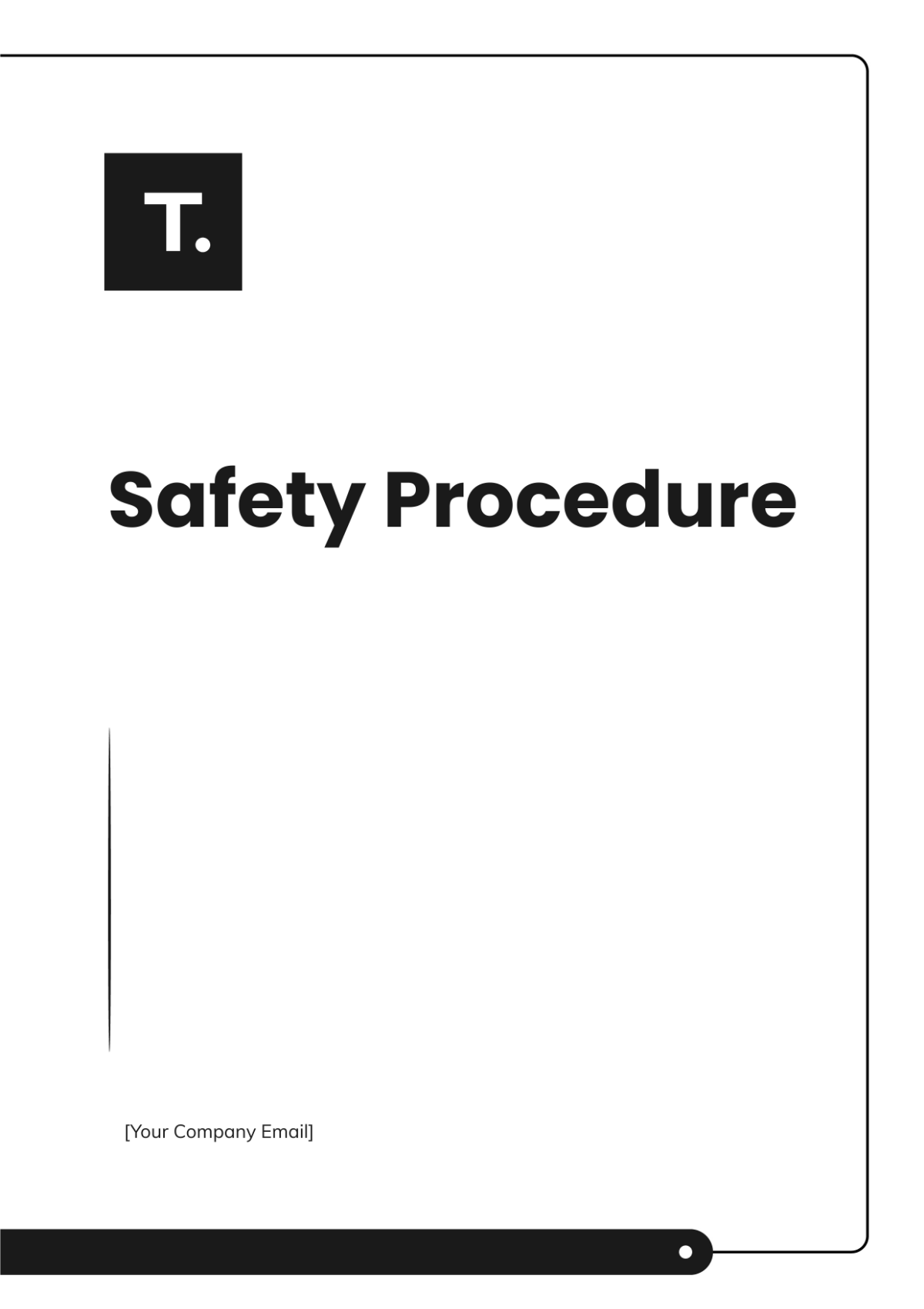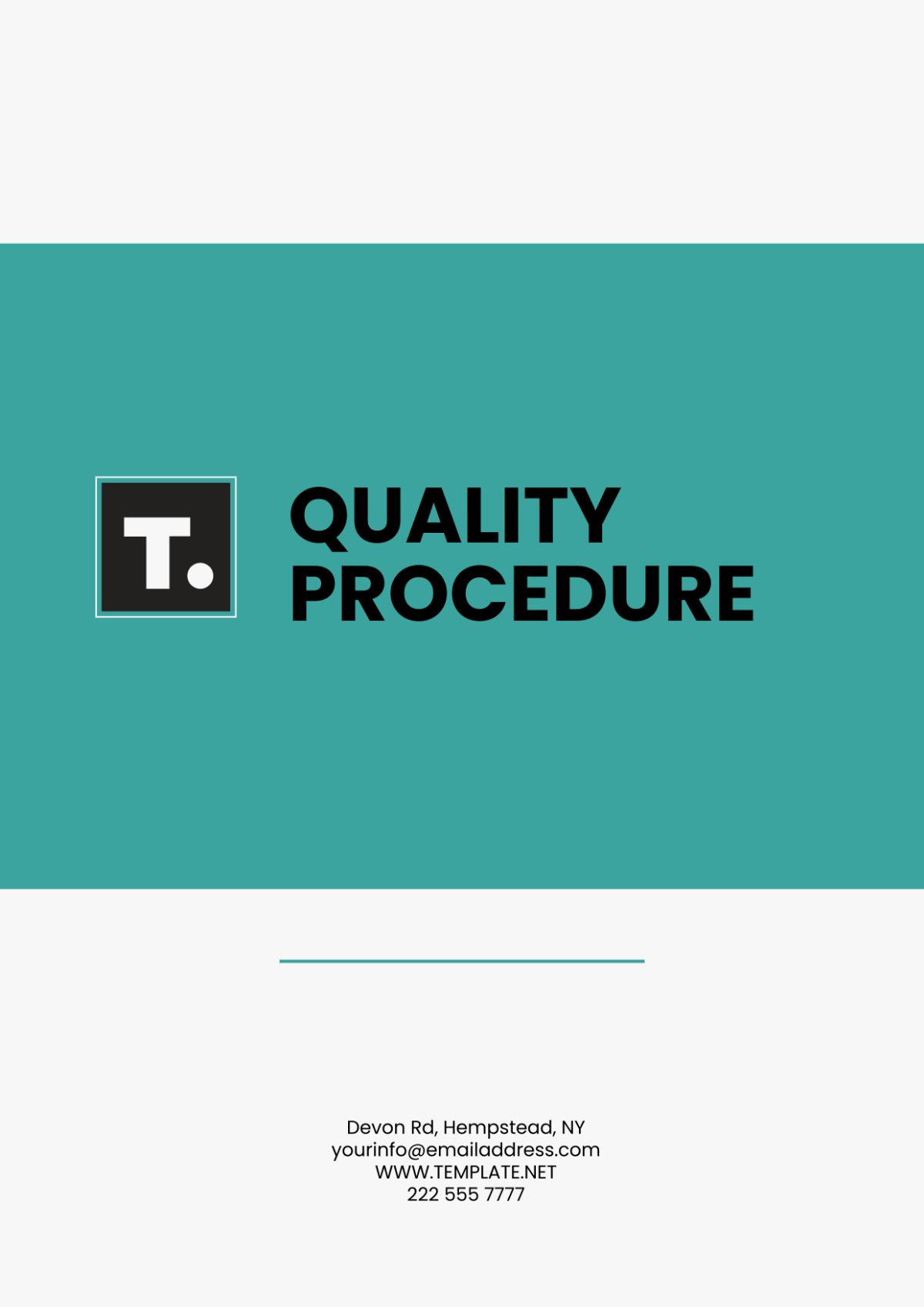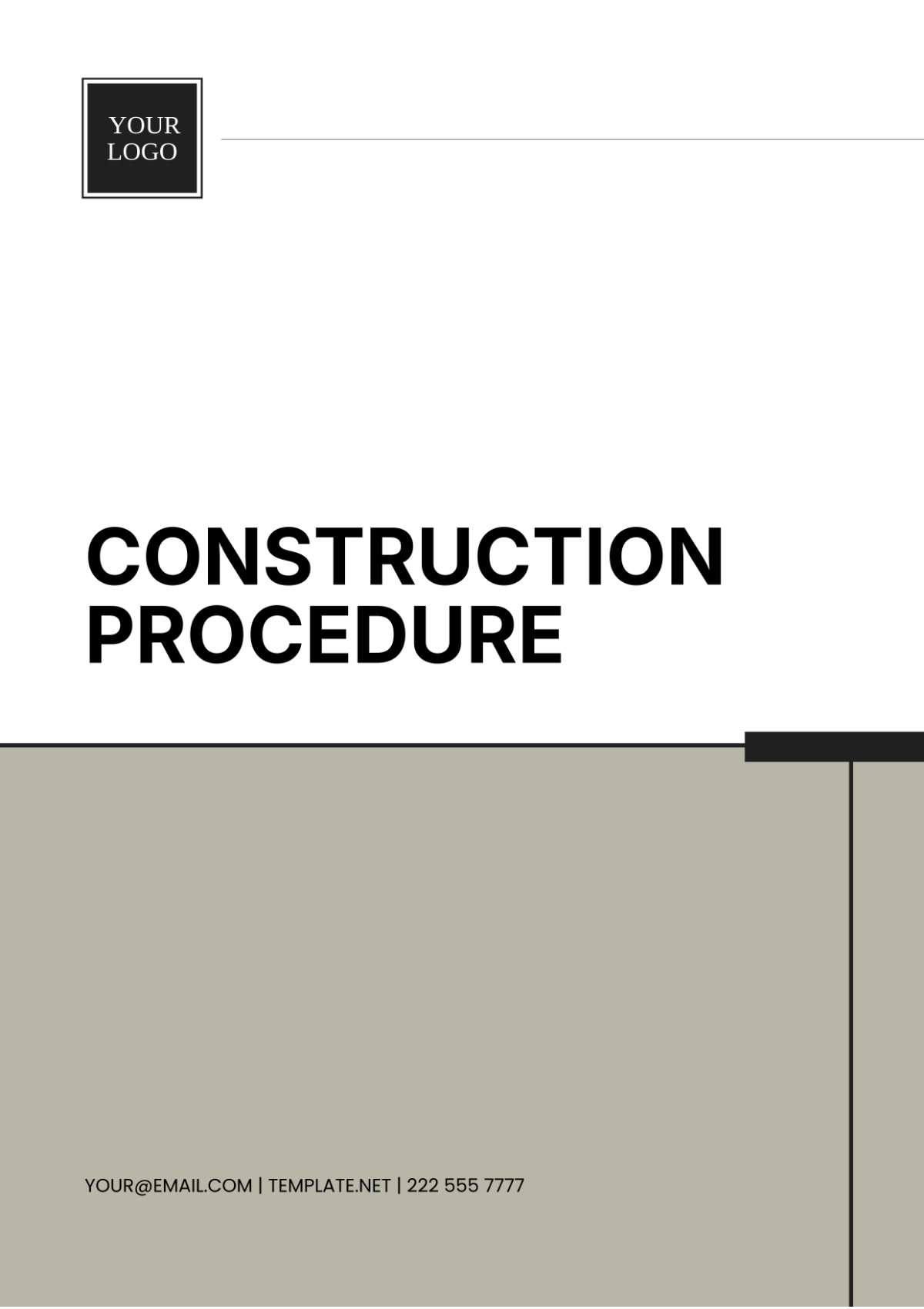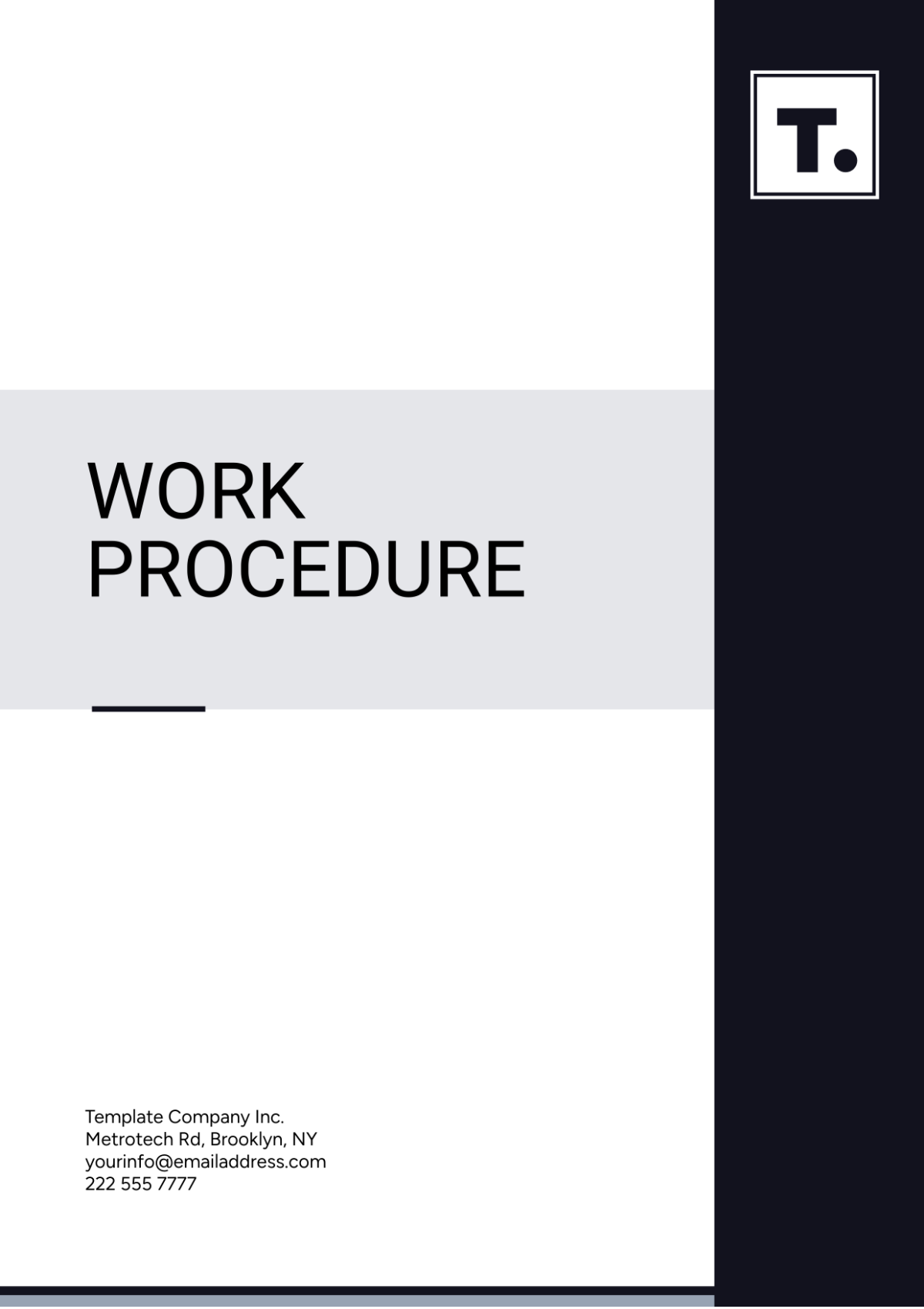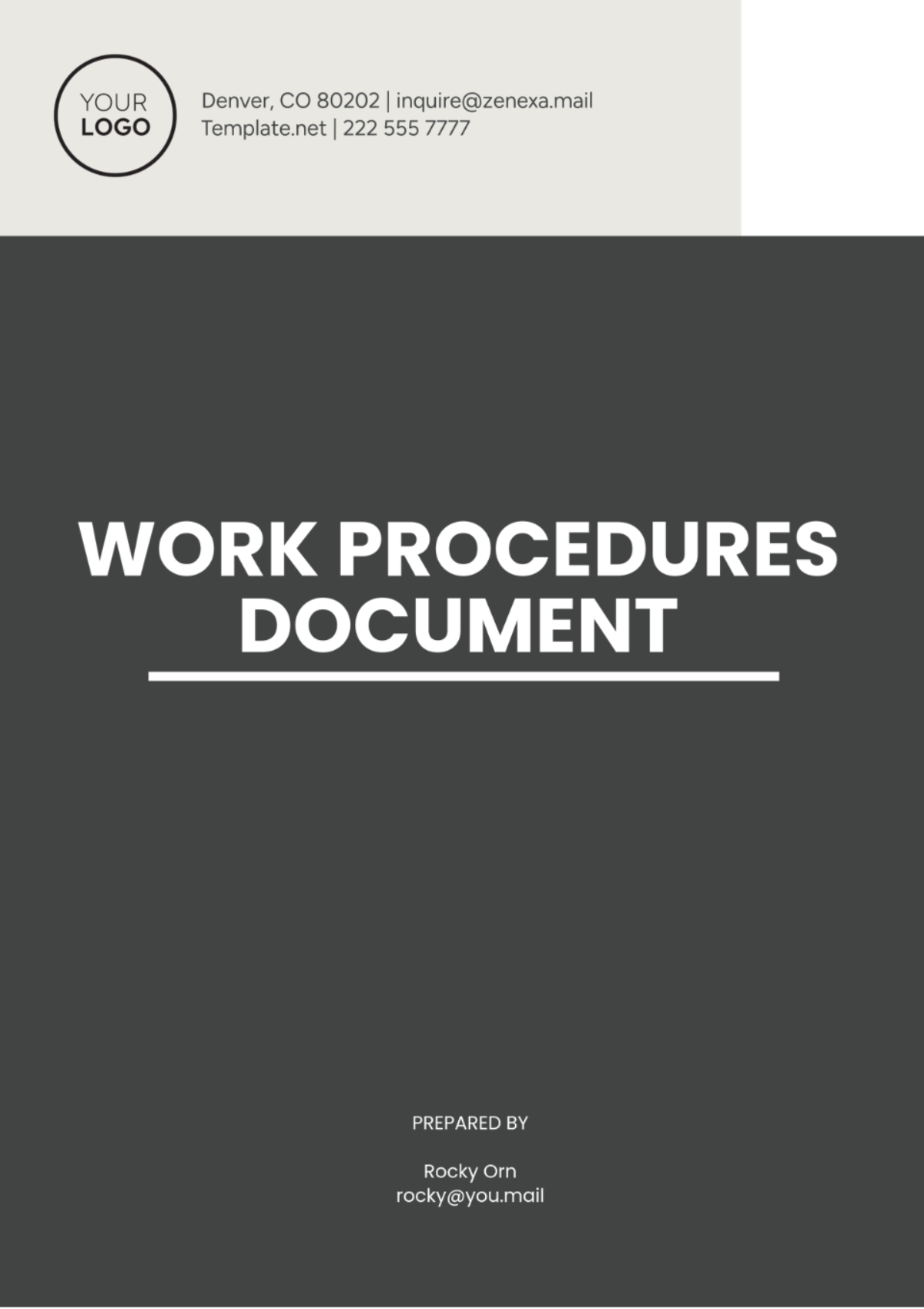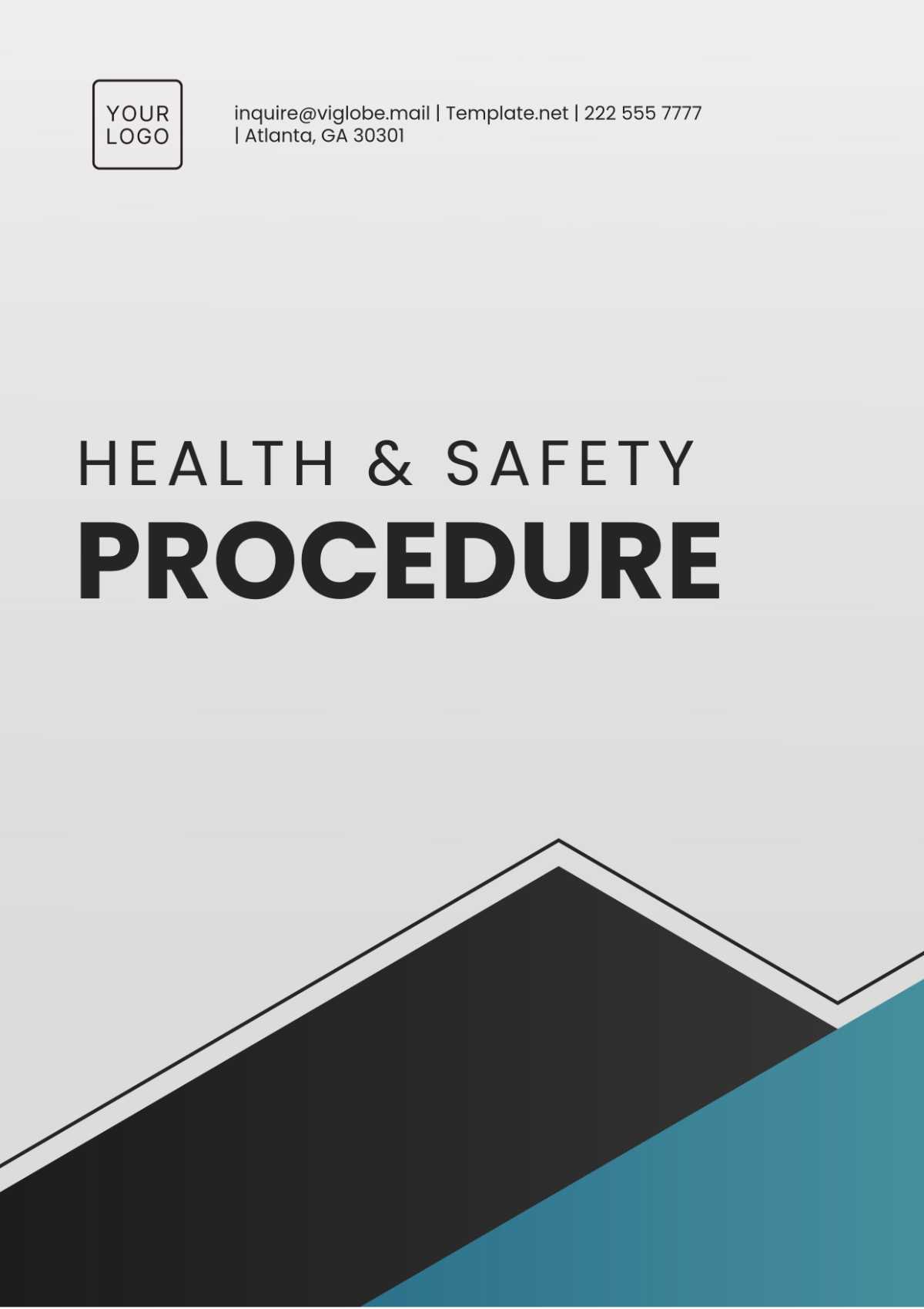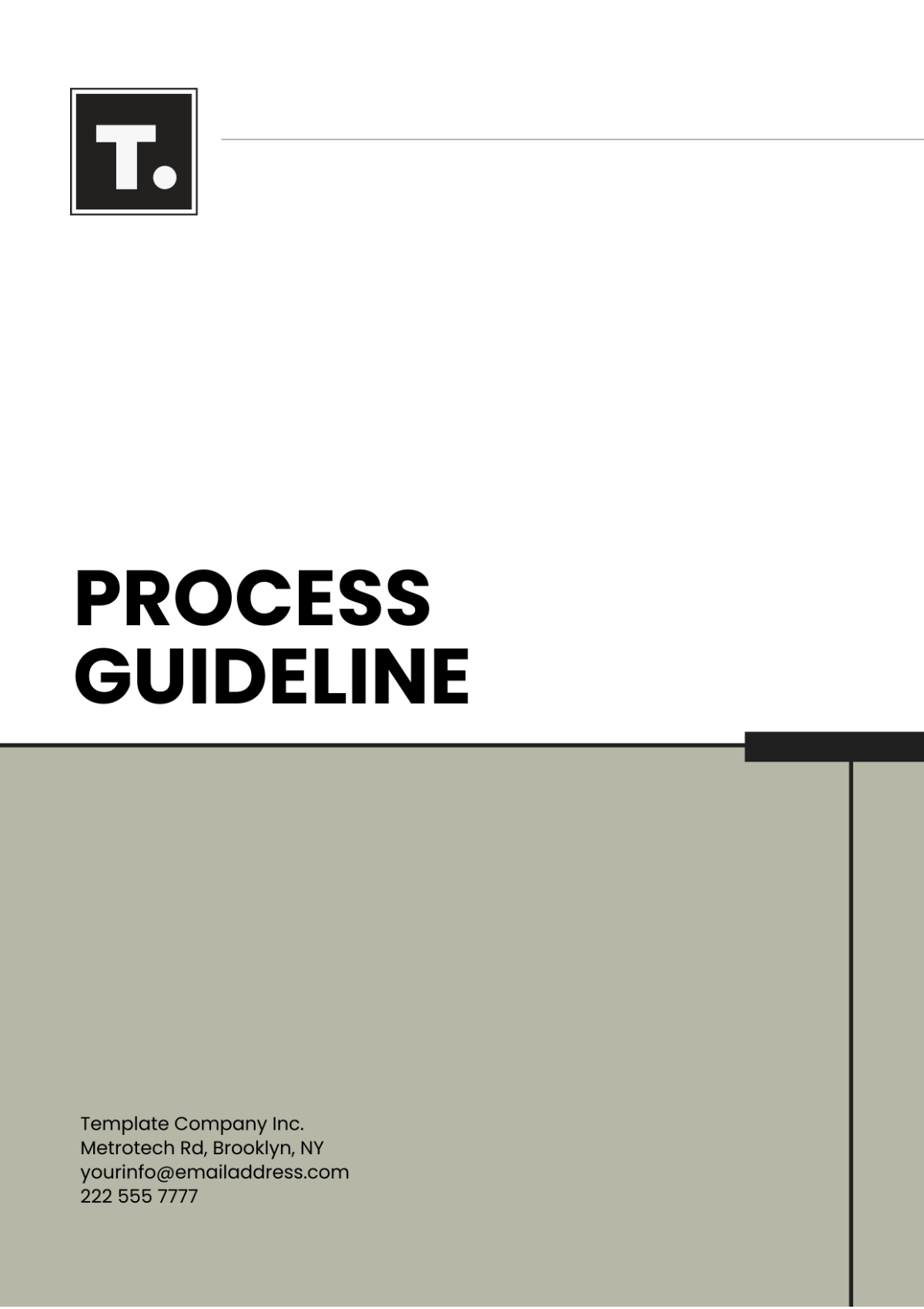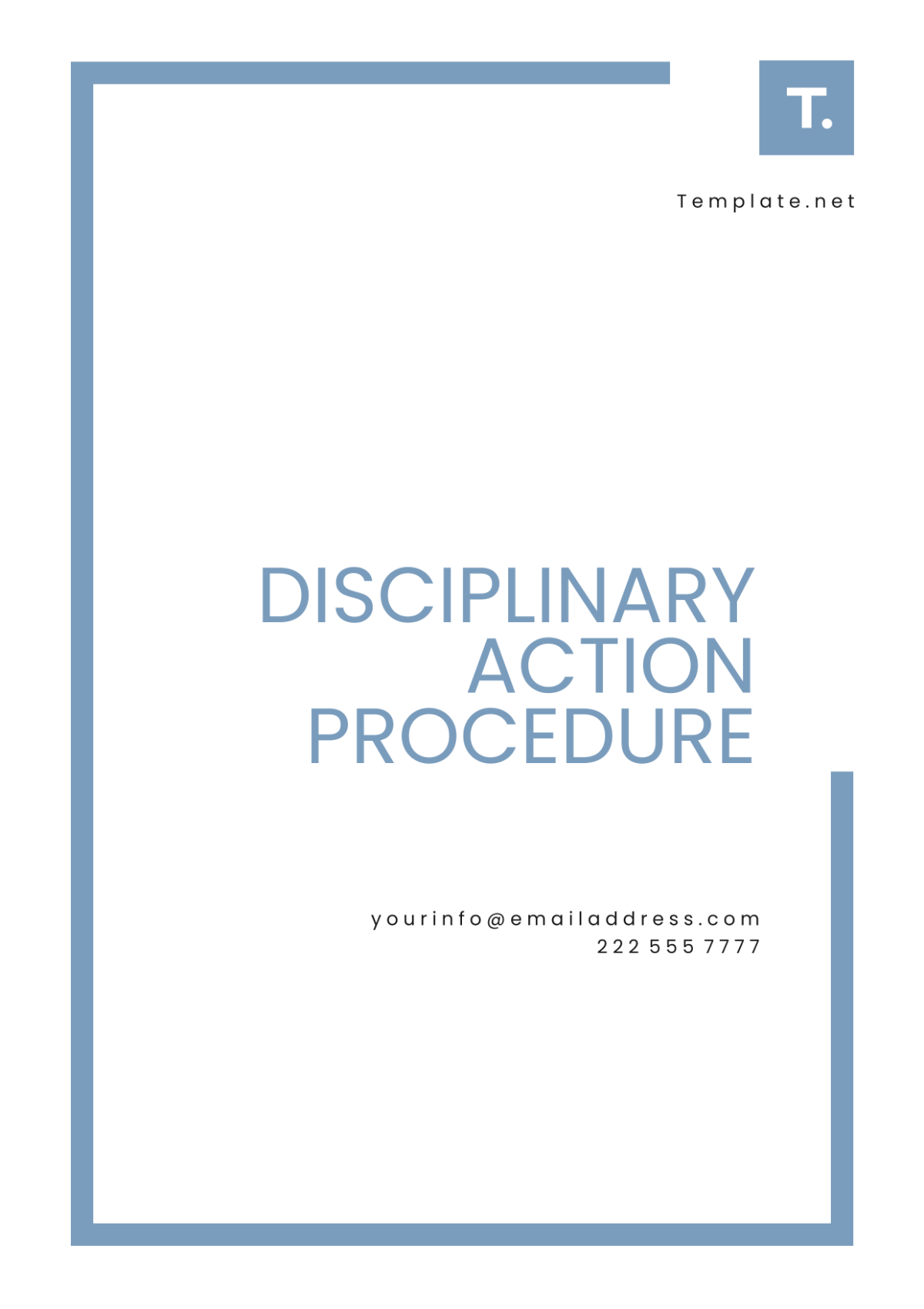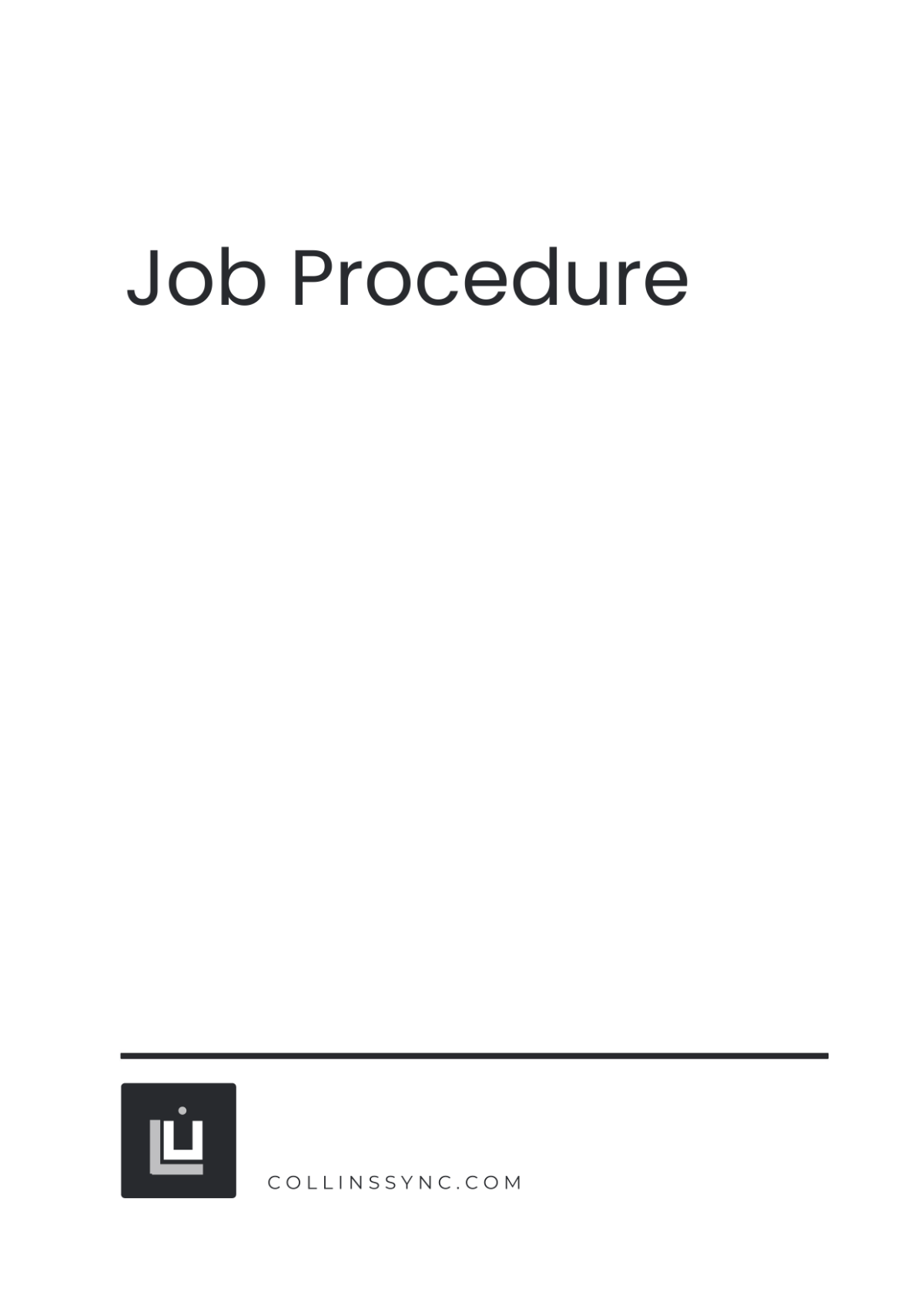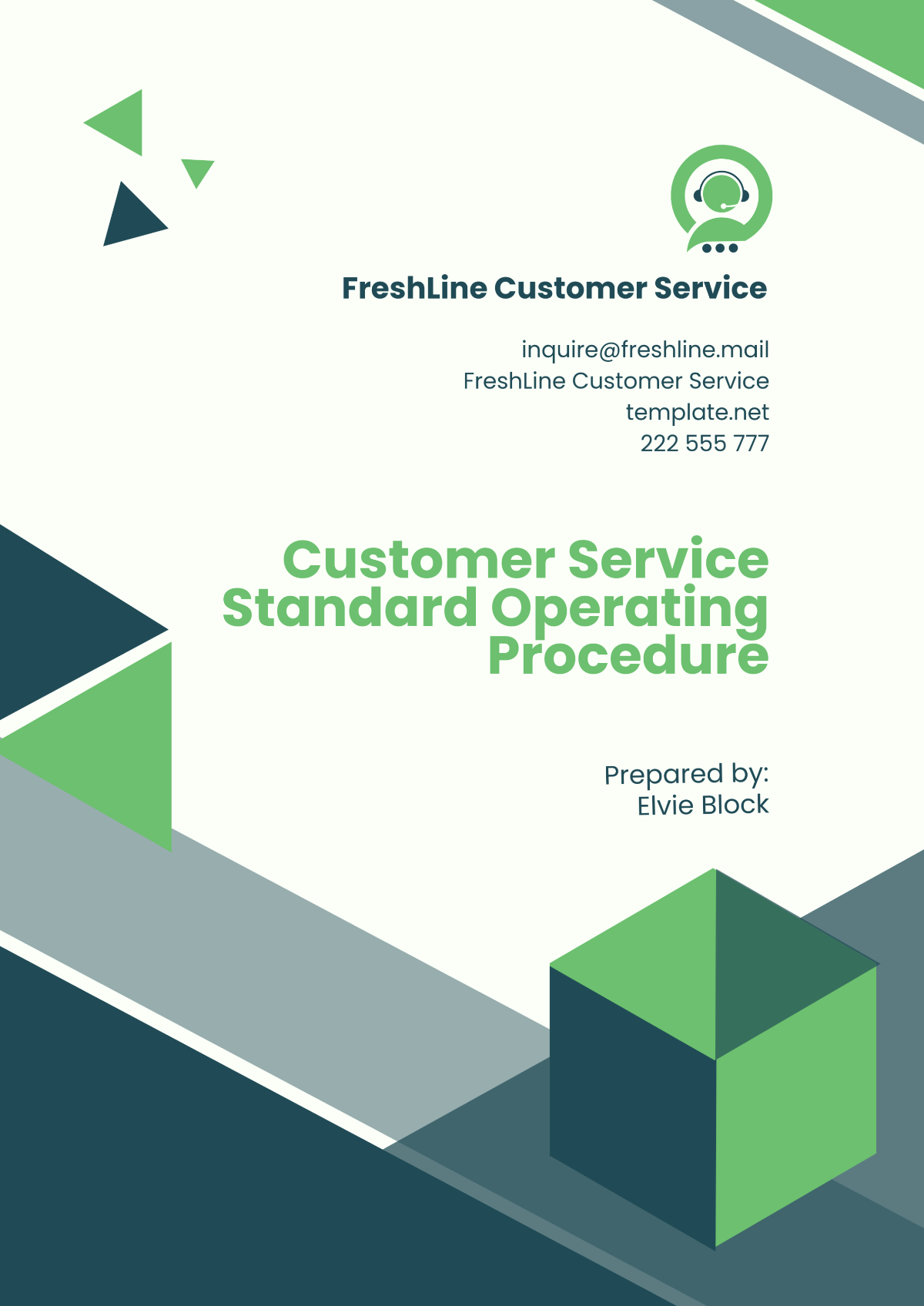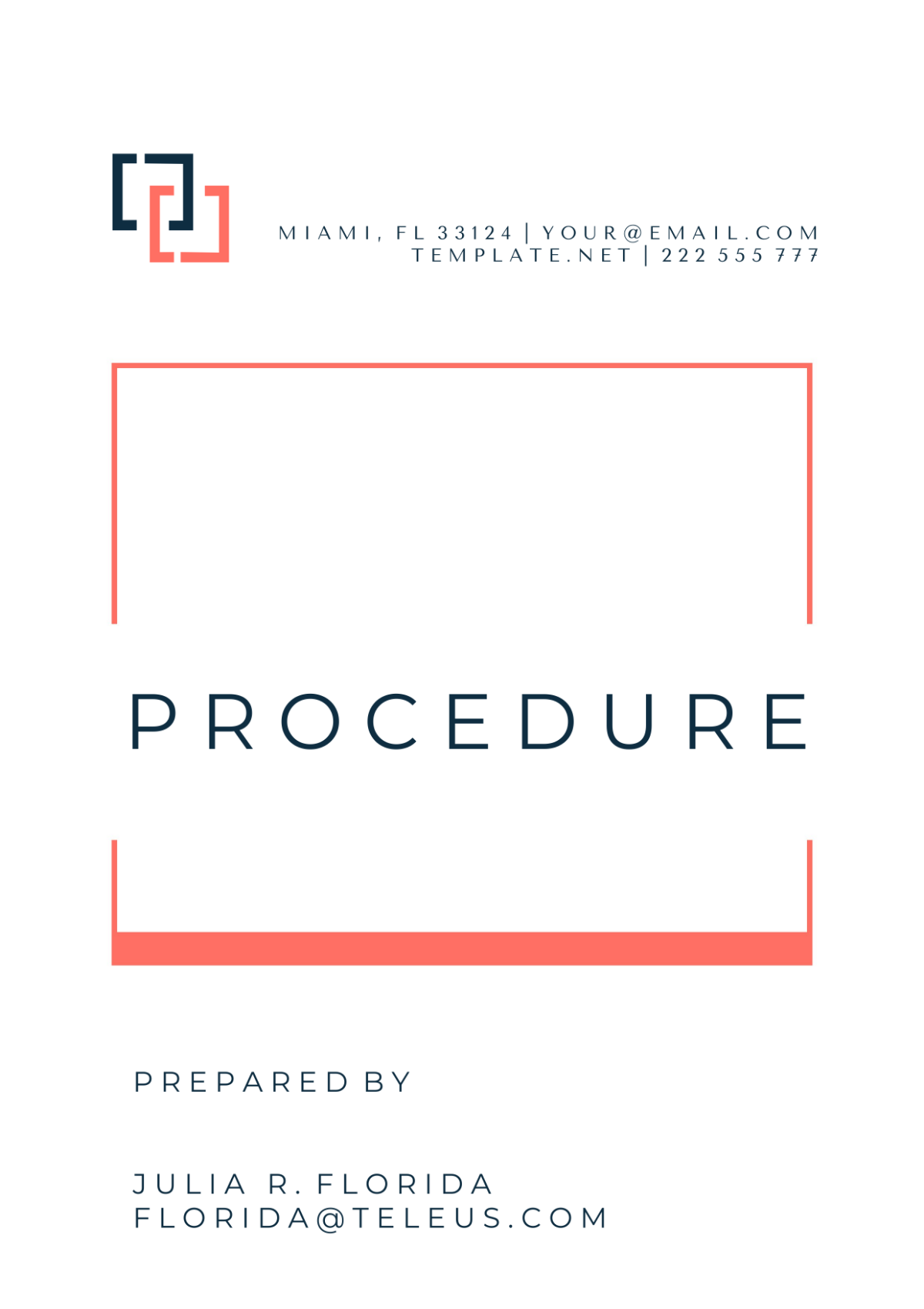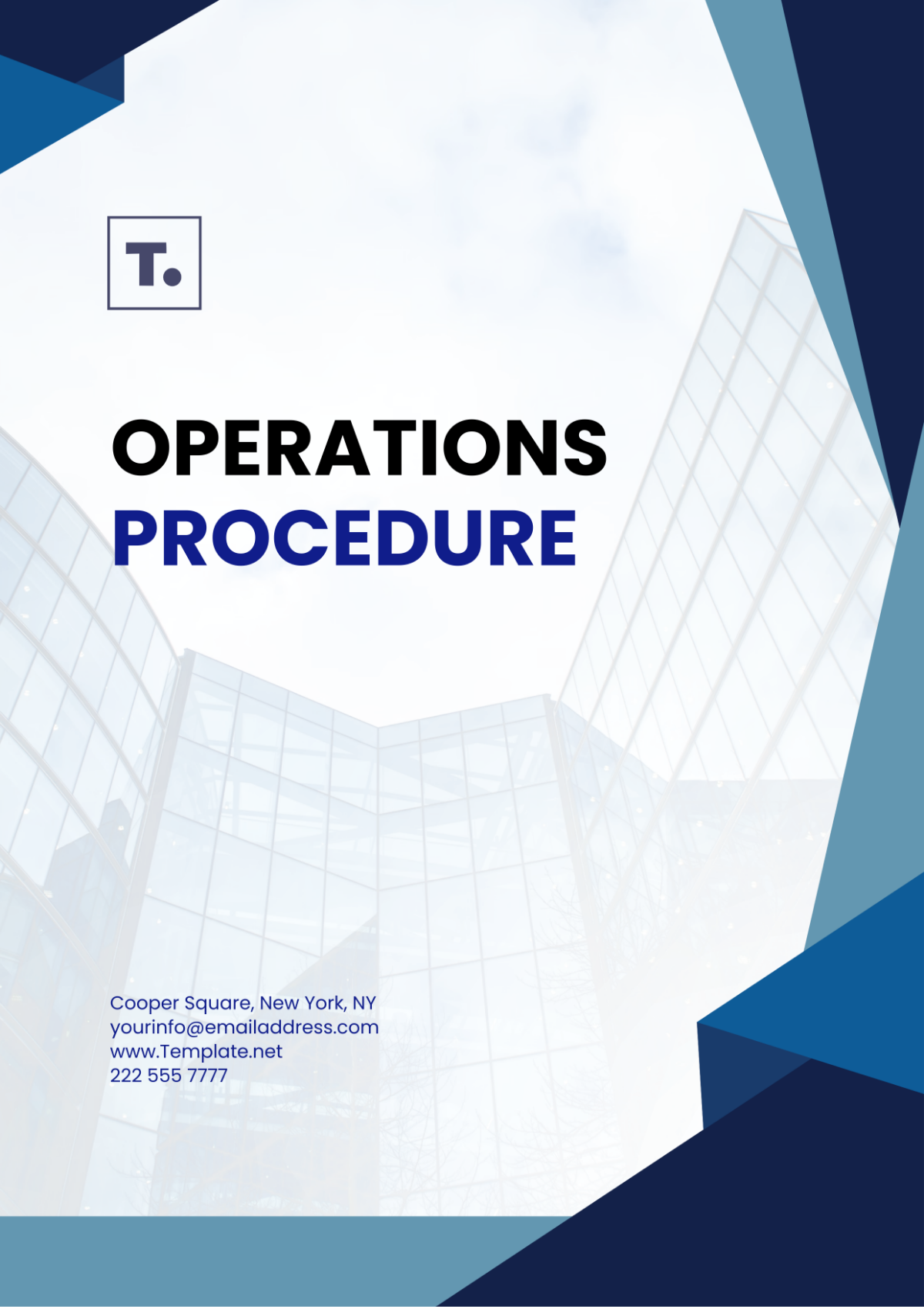School Process Procedure
I. Introduction
This School Process Procedure document is designed to serve as a comprehensive guide for [Your Company Name], ensuring that all school operations adhere to relevant local, state, and federal laws. By meticulously outlining each process, we aim to guarantee that our institution meets the highest standards of educational compliance. This document is not just a regulatory necessity but a cornerstone of our commitment to providing a safe, legally sound, and effective learning environment for all students and staff.
One of the primary goals of this document is to streamline administrative tasks across various departments. Clear, well-defined procedures help minimize confusion, reduce errors, and enhance the overall efficiency of school operations. By implementing these standardized processes, we can ensure that every administrative task, from student enrollment to record-keeping, is conducted smoothly and efficiently, freeing up valuable time and resources to focus on our core mission of education.
Additionally, this document provides a clear and consistent framework for school operations, ensuring that all stakeholders understand their roles and responsibilities. By establishing uniform procedures, we promote fairness and equity, enabling staff and students to navigate the school environment with confidence. This consistency is vital for maintaining a positive and productive school culture, where everyone is aligned with our institutional goals and values. Moreover, the detailed guidelines included herein help identify and mitigate potential risks, fostering a secure and resilient school community.
II. General Policies
This section outlines the foundational policies that govern our institution's operations, ensuring legal compliance, adherence to educational standards, and maintaining transparency and accountability. These policies are regularly reviewed and refined to adapt to evolving educational needs and regulatory requirements, ensuring our school remains a leading institution in providing quality education. The following tables provide a detailed breakdown of each policy area.
Compliance with Local, State, and Federal Laws
Policy Area | Description | Responsible Party | Review Frequency | Relevant Regulations |
|---|---|---|---|---|
Health and Safety Regulations | Ensure the school meets all health and safety standards, including fire drills and emergency procedures. | Health and Safety Officer | Annually | OSHA, State Health Department |
Student Privacy | Protect student information in accordance with FERPA and state privacy laws. | Compliance Officer | Biannually | FERPA, State Privacy Laws |
Employment Law | Ensure all employment practices comply with labor laws, including non-discrimination and fair hiring. | HR Department | Annually | EEOC, State Labor Laws |
Special Education | Provide appropriate accommodations and support for students with disabilities. | Special Education Coordinator | Biannually | IDEA, ADA, State Education Laws |
Adherence to Educational Standards
Policy Area | Description | Responsible Party | Review Frequency | Relevant Standards |
|---|---|---|---|---|
Curriculum Development | Align curriculum with state and national education standards. | Curriculum Coordinator | Annually | State Department of Education, Common Core |
Teacher Certification | Ensure all teachers meet certification requirements and pursue ongoing professional development. | HR Department | Annually | State Education Certification Board |
Assessment and Evaluation | Implement standardized testing and evaluation processes to monitor student progress. | Assessment Coordinator | Biannually | State and Federal Education Standards |
Instructional Materials | Select and review textbooks and materials to ensure they meet educational standards. | Curriculum Coordinator | Annually | State Department of Education |
Maintaining Transparency and Accountability
Policy Area | Description | Responsible Party | Review Frequency | Methods of Accountability |
|---|---|---|---|---|
Financial Reporting | Provide regular financial reports to stakeholders, ensuring transparency in budgeting and expenditures. | Finance Department | Quarterly | Audits, Financial Statements |
Governance and Decision-Making | Maintain clear records of governance decisions and ensure stakeholder participation. | Board of Trustees | Quarterly | Meeting Minutes, Public Reports |
Stakeholder Communication | Regularly update parents, students, and staff on school policies and changes. | Communications Officer | Monthly | Newsletters, Emails, Website Updates |
Ethical Conduct | Enforce a code of ethics for all staff and students, addressing misconduct promptly. | Ethics Committee | Annually | Code of Conduct, Incident Reports |
Regular Review and Refinement of Processes
Policy Area | Description | Responsible Party | Review Frequency | Review Methods |
|---|---|---|---|---|
Policy Review | Regularly review and update all school policies to ensure they remain current and effective. | Compliance Officer | Annually | Policy Audits, Stakeholder Feedback |
Process Improvement | Identify areas for process improvement and implement changes based on best practices and stakeholder input. | Operations Manager | Biannually | Process Audits, Improvement Plans |
Training and Development | Provide ongoing training for staff to ensure they are up-to-date with current policies and procedures. | HR Department | Quarterly | Workshops, Seminars, Online Courses |
Performance Metrics | Use performance metrics to assess the effectiveness of policies and procedures, making adjustments as needed. | Assessment Coordinator | Biannually | Data Analysis, Performance Reviews |
III. Admission Process
This section details the comprehensive admission process for prospective students, from initial application submission to final enrollment. Our goal is to ensure a transparent, fair, and efficient admission process that selects the most suitable candidates for [Your Company Name]. The following tables outline each step in the process, including responsibilities, required documents, and timelines.
1. Application Submission
Step | Description | Responsible Party | Required Documents | Additional Notes |
|---|---|---|---|---|
Collect Application Forms | Obtain application forms from the school office or download from the website. | Admissions Office | Application Form, School Brochure | Ensure forms are easily accessible online and in-office. |
Complete and Submit Form | Fill out the application form and submit it along with required documents to [Your Company Name]. | Parents/Guardians | Completed Application Form, Birth Certificate, Previous School Records, Proof of Residence, Passport-Sized Photos, Application Fee Receipt | Verify that all information is complete before submission. |
2. Review and Selection
Step | Description | Review Criteria | Timeline | Additional Notes |
|---|---|---|---|---|
Initial Screening | Admissions committee conducts initial screening of all applications. | Completeness of Application, Basic Eligibility (Age, Residency, Basic Academic Qualifications) | 1-2 Weeks Post Submission | Applications missing key documents may be deferred. |
Review Applications | Detailed review of applications focusing on academic and extracurricular achievements. | Academic Records, Extracurricular Activities, Personal Statement, Letters of Recommendation, Special Talents or Achievements | 3-4 Weeks Post Submission | Evaluate consistency and breadth of achievements. |
Schedule Interviews | Arrange interviews for shortlisted candidates. | Interview Schedule, Interview Panel Preparation, Interview Questions | 1-2 Weeks Post Review | Ensure interview panels are briefed and prepared. |
Conduct Interviews | Conduct in-depth interviews with shortlisted candidates to assess suitability. | Communication Skills, Critical Thinking, Compatibility with School Culture, Potential for Growth | 1-2 Days Per Candidate | Provide candidates with interview guidelines beforehand. |
Final Selection | Admissions committee makes final selection of candidates based on comprehensive review. | Combined Evaluation of Application, Interview Performance, Committee Consensus | 1 Week Post Interviews | Maintain detailed records of the decision-making process. |
Notify Selected Candidates | Inform selected candidates about their acceptance, providing details for next steps. | Acceptance Letter, Enrollment Instructions, Welcome Packet | 1-2 Days Post Final Selection | Follow up with non-selected candidates professionally. |
3. Enrollment
Step | Description | Required Documents | Deadline | Additional Notes |
|---|---|---|---|---|
Complete Enrollment Form | Parents/guardians of selected students complete the enrollment form. | Completed Enrollment Form, Copy of Acceptance Letter, Initial Tuition Payment Receipt | Specified Deadline | Ensure forms are correctly filled out to avoid delays. |
Submit Required Documents | Submit all necessary documents by the specified deadline. | Medical Records, Immunization Records, Proof of Address, Guardianship Documents, Emergency Contact Information, Transfer Certificates (if applicable) | Specified Deadline | Double-check document authenticity and completeness. |
Orientation Session | Conduct orientation sessions for new students and parents to introduce school policies and procedures. | Orientation Schedule, Handbook, Code of Conduct, School Calendar, Resource List | 1 Week Before School Starts | Provide a comprehensive overview of school expectations. |
Final Confirmation | Confirm final enrollment status and provide class schedules. | Enrollment Confirmation Letter, Class Schedule, Student ID | 1 Week Before School Starts | Ensure all logistics are in place for the start of the school year. |
This structured approach ensures that every step of the admission process is clear, organized, and efficient, helping both the school and prospective families navigate the journey from application to enrollment with ease and confidence.
IV. Attendance Policy
This section outlines the comprehensive attendance policy for [Your Company Name], detailing the procedures for recording attendance and handling absences. The goal is to ensure accurate attendance records, promote regular school attendance, and provide a structured approach for managing absences. The following tables provide a detailed breakdown of each subheading, including responsibilities, required actions, timelines, and additional notes.
1. Recording Attendance
Step | Description | Required Actions | Submission Method | Timeline | Additional Notes |
|---|---|---|---|---|---|
Morning Attendance | Homeroom teachers take attendance every morning. | Mark present/absent for each student in attendance register. | Attendance Register | Daily, before 9 AM | Ensure accuracy and punctuality in recording attendance. |
Attendance Submission | Attendance records are submitted to the school office daily. | Submit compiled attendance sheets to the school office. | Physical Submission, Online | Daily, by 10 AM | Use electronic submission methods if available. |
Verification and Filing | Verify and file attendance records for official use. | Check for discrepancies, file records appropriately. | Internal Process | Daily, by End of Day | Keep records organized for easy retrieval. |
Monthly Attendance Report | Generate monthly attendance reports for review. | Compile daily attendance records into a monthly report. | Internal Process | Monthly, by End of Month | Review for patterns or issues that need addressing. |
2. Handling Absences
Step | Description | Required Actions | Timeline | Additional Notes |
|---|---|---|---|---|
Planned Absence Notification | Notify the school office before 9 AM for planned absences. | Call or email the school office to report the planned absence. | At least 1 Day Before Absence | Provide reasons and duration of the absence. |
Submission of Written Note | Submit a written note or doctor's certificate for extended absences. | Provide a signed note explaining the reason for the absence. | Within 3 Days Post Absence | Ensure documentation is clear and legible. |
Record and File Absence | Record and file the absence documentation for future reference. | Attach the note or doctor's certificate to the student's record. | Within 1 Day of Submission | Keep records in a secure and confidential manner. |
Review Absence Patterns | Review absence patterns and follow up with parents if necessary. | Analyze attendance records to identify patterns of concern. | Monthly, or as needed | Schedule meetings with parents if necessary. |
Support for Extended Absences | Provide academic support for students with extended absences. | Develop a plan to help the student catch up on missed work. | As Needed | Coordinate with parents to facilitate the student's return. |
This structured approach ensures that every step of the attendance policy is clear, organized, and effective, helping both the school and families maintain accurate attendance records and manage absences efficiently.
V. Emergency Procedures
This section outlines the comprehensive emergency procedures for [Your Company Name], ensuring the safety and well-being of students and staff during emergencies. The procedures cover fire drills and lockdown situations, providing clear guidelines on how to conduct drills, evacuate safely, and manage lockdown scenarios effectively. The following tables detail each step, including responsibilities, required actions, timelines, and additional notes.
1. Fire Drills
Step | Description | Required Actions | Timeline | Additional Notes |
|---|---|---|---|---|
Conduct Fire Drills | Fire drills are conducted once every semester to ensure preparedness. | Schedule and execute fire drills with advance notice. | Once per Semester | Coordinate with local fire department if possible. |
Familiarize Evacuation Routes | Ensure all students and staff are familiar with evacuation routes. | Review evacuation routes and procedures with students. | At Beginning of Semester | Use visual aids and maps to reinforce routes. |
Evacuate Building | Evacuate the building promptly during the drill. | Follow designated routes to the assembly point. | During Drill | Ensure orderly and calm evacuation. |
Roll Call and Attendance | Conduct roll call to ensure all students and staff are accounted for. | Take attendance at the assembly point and report any missing persons. | Immediately Post Evacuation | Have a designated assembly point for each class. |
Maintain Drill Records | Maintain a record of drill dates and attendance for compliance. | Document the date, time, and attendance of each drill. | After Each Drill | Review drill performance and identify areas for improvement. |
2. Lockdown Procedures
Step | Description | Required Actions | Timeline | Additional Notes |
|---|---|---|---|---|
Initiate Lockdown | Lockdown procedures are initiated in response to threats. | Announce lockdown over the PA system. | Immediately upon Threat | Ensure PA system is functioning and audible. |
Lock Classroom Doors | Lock classroom doors and turn off lights to secure the room. | Secure all entry points and darken the room. | Immediately upon Lockdown | Use door barricades if available. |
Instruct Students to Hide | Instruct students to remain quiet and hide away from windows and doors. | Guide students to safe hiding spots in the classroom. | During Lockdown | Use predetermined hiding spots. |
Maintain Silence | Ensure all students remain quiet to avoid detection. | Stay silent and avoid any movement or noise. | During Lockdown | Use signals for silence enforcement if necessary. |
Await All-Clear Signal | Wait for the all-clear signal from administration before resuming normal activities. | Remain in lockdown until the official all-clear is given. | Until All-Clear Signal | Verify the source of the all-clear signal for authenticity. |
Document and Review | Document the lockdown event and review procedures for future improvements. | Record the details of the lockdown and conduct a debriefing. | Post-Lockdown | Use feedback to improve future response plans. |
This structured approach ensures that every step of the emergency procedures is clear, organized, and effective, helping both the school and families understand and adhere to safety protocols during emergencies.
VI. Data Protection
This section outlines the comprehensive data protection procedures for [Your Company Name], ensuring the security and confidentiality of personal information. These procedures cover the collection, storage, access, and management of personal data, as well as the steps to take in the event of a data breach. The following tables provide a detailed breakdown of each subheading, including responsibilities, required actions, timelines, and additional notes.
1. Personal Information
Step | Description | Responsible Party | Required Actions | Timeline | Additional Notes |
|---|---|---|---|---|---|
Data Collection | Collect personal data in compliance with data protection laws. | Administration | Obtain consent and inform individuals about data usage. | Upon Enrollment or Collection | Ensure all forms are compliant with relevant laws. |
Secure Storage | Store personal data securely to prevent unauthorized access. | IT Department | Use encrypted databases and secure physical storage. | Ongoing | Regularly update security protocols. |
Access Restriction | Restrict access to personal data to authorized personnel only. | Data Protection Officer | Implement role-based access controls. | Ongoing | Conduct regular access reviews. |
Data Handling Training | Provide training on data handling and protection to staff. | HR Department | Conduct workshops and training sessions. | Annually, or as needed | Ensure all staff understand data protection policies. |
Regular Audits | Conduct regular audits of data storage and access practices. | Internal Audit Team | Review and report on data protection compliance. | Biannually | Address any identified vulnerabilities promptly. |
2. Data Breach Management
Step | Description | Responsible Party | Required Actions | Timeline |
|---|---|---|---|---|
Report Suspected Breach | Immediately report any suspected data breaches to the school administration. | All Staff | Use designated reporting channels to alert administration. | Immediately upon Discovery |
Initial Assessment | Conduct an initial assessment to understand the scope and impact of the breach. | Data Protection Officer | Determine the nature and extent of the breach. | Within 24 Hours of Report |
Mitigation Measures | Implement measures to contain and mitigate the breach. | IT Department | Secure affected systems and prevent further data loss. | Immediately upon Assessment |
Notification to Affected | Notify affected individuals and relevant authorities as required. | School Administration | Draft and send notification letters to affected parties. | Within 72 Hours of Assessment |
Detailed Investigation | Conduct a detailed investigation to identify the cause and prevent future breaches. | Internal Audit Team | Analyze breach details and document findings. | Within 1 Week of Breach |
Post-Breach Review | Review the breach incident and update protocols and training as needed. | Data Protection Officer | Hold a debrief meeting and implement recommendations. | Within 2 Weeks of Breach |
This structured approach ensures that every step of the data protection procedures is clear, organized, and effective, helping both the school and its stakeholders understand and adhere to protocols for protecting personal information and managing data breaches efficiently.
VII. Continuous Improvement
This section outlines the comprehensive procedures for continuous improvement at [Your Company Name], focusing on collecting feedback and reviewing processes to enhance school operations. The goal is to foster a culture of ongoing development, ensuring that the school remains responsive to the needs of students, parents, and staff. The following tables provide a detailed breakdown of each subheading, including responsibilities, required actions, timelines, and additional notes.
1. Feedback Collection
Step | Description | Responsible Party | Required Actions | Timeline |
|---|---|---|---|---|
Feedback Surveys | Regularly collect feedback from students, parents, and staff. | Administration | Design and distribute surveys through various channels. | Quarterly |
Feedback Analysis | Analyze feedback to identify areas for improvement. | Quality Assurance Team | Compile survey results and identify common themes. | Within 2 Weeks of Collection |
Focus Group Discussions | Conduct focus group discussions to gather in-depth insights. | Administration | Organize sessions with diverse participant groups. | Biannually |
Feedback Reporting | Report feedback findings to the school administration and staff. | Quality Assurance Team | Prepare and present detailed feedback reports. | Quarterly |
Action Plan Development | Develop action plans based on feedback to address identified issues. | School Administration | Create detailed plans with timelines and responsibilities. | Quarterly, Post-Reporting |
2. Process Review
Step | Description | Responsible Party | Required Actions | Timeline |
|---|---|---|---|---|
Annual Process Reviews | Conduct annual reviews of all school processes. | Internal Audit Team | Schedule and conduct comprehensive process reviews. | Annually |
Review Documentation | Document review findings and recommendations for improvement. | Internal Audit Team | Compile findings into a detailed report. | Within 1 Month Post-Review |
Implementation of Changes | Implement changes based on review findings and feedback. | School Administration | Develop and execute implementation plans. | Ongoing |
Training and Communication | Provide training and communicate changes to all relevant parties. | HR Department | Conduct training sessions and distribute informational materials. | Within 1 Month of Changes |
Continuous Monitoring | Monitor the effectiveness of implemented changes and make further adjustments as needed. | Quality Assurance Team | Track performance metrics and gather ongoing feedback. | Ongoing |
This structured approach ensures that every step of the continuous improvement procedures is clear, organized, and effective, helping the school to remain adaptive and responsive to feedback, and continuously improve its processes and overall performance.
